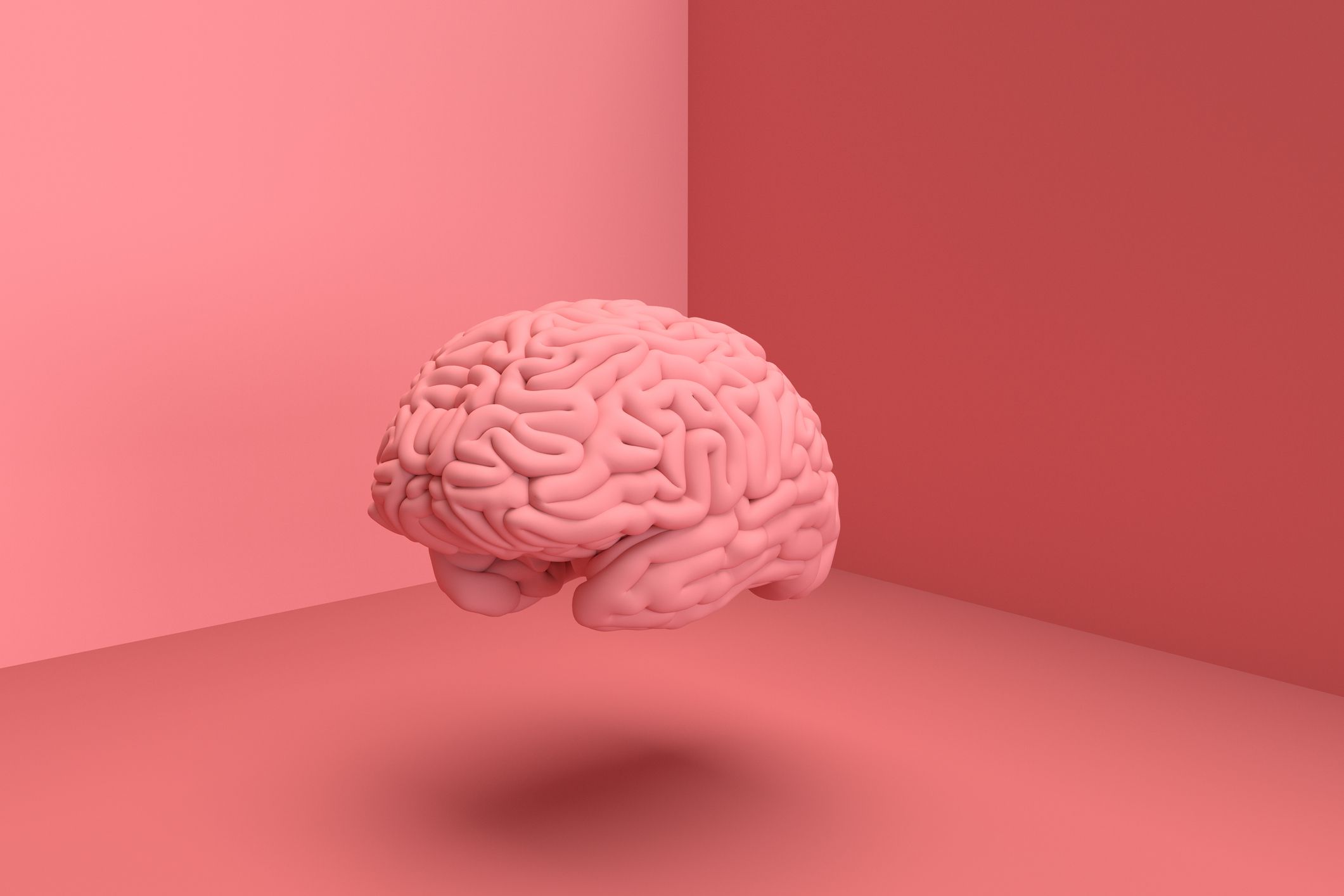
Things You Didn’t Know About The Human Brain
1. 60% of your brain is made of fat
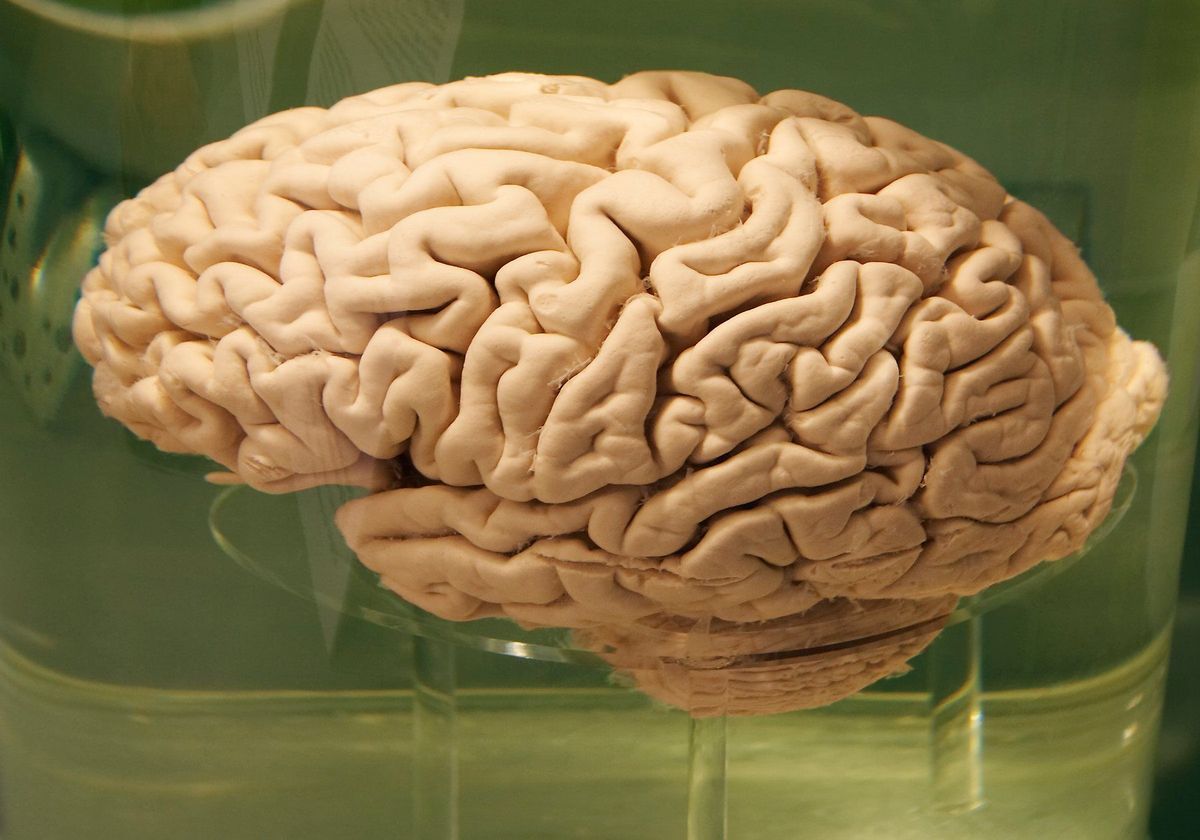 Image source/The ScientistYou probably wouldn't have had your brain down as the fattiest organ in your body - neither did we! The fatty acids in your brain however are vital for its maximum performance. This is one of the many reasons why you have to make sure you're looking after your brain and giving it the mind-boosting nutrients it needs.
Image source/The ScientistYou probably wouldn't have had your brain down as the fattiest organ in your body - neither did we! The fatty acids in your brain however are vital for its maximum performance. This is one of the many reasons why you have to make sure you're looking after your brain and giving it the mind-boosting nutrients it needs.Advertisement
2. Brain information travels at 268 miles per hour
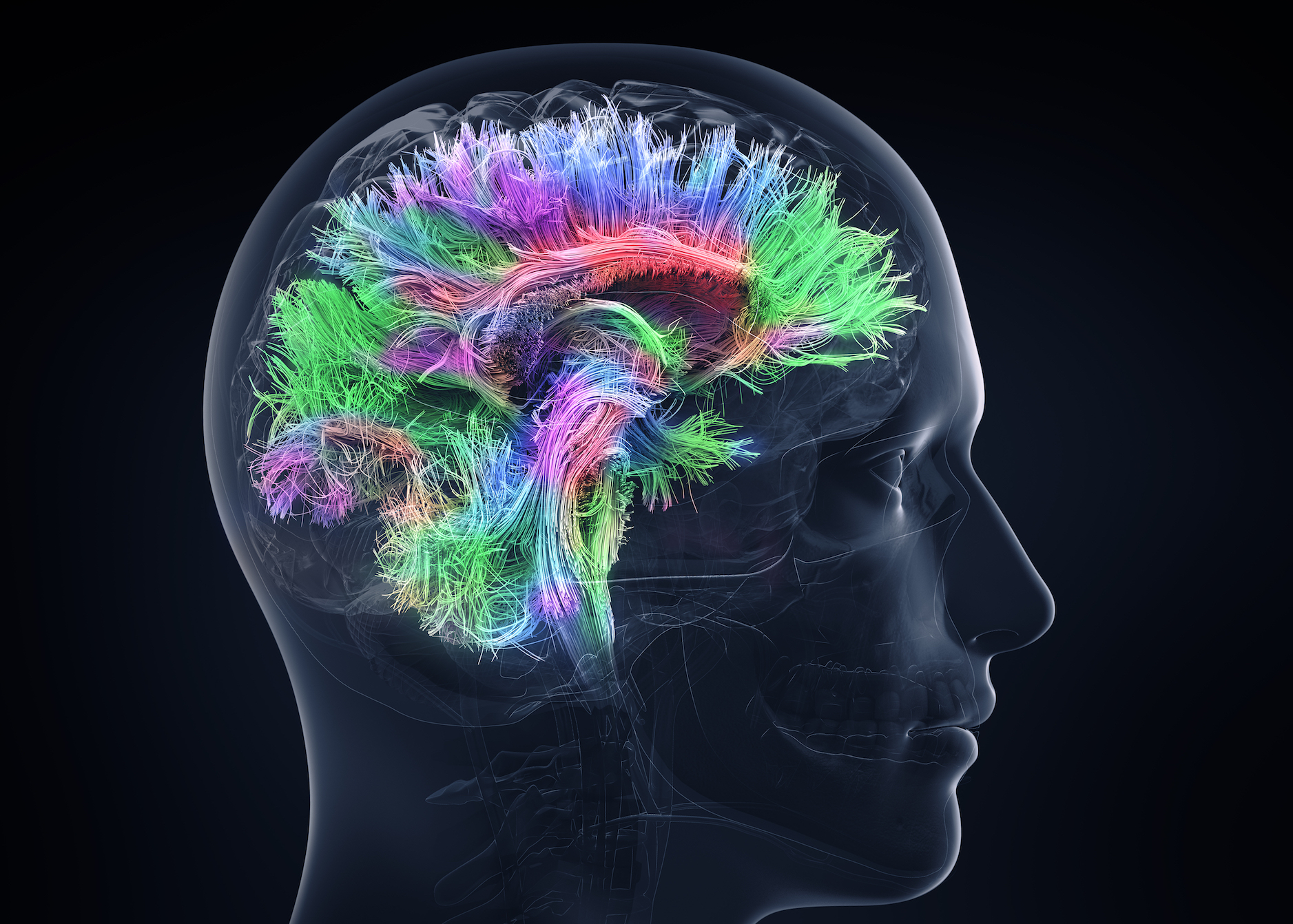 Image source/EarthThere's a good job there's no speed cameras in your brain, because it will going well over the speed limit. Information in your brain travels at a mesmerising 268 miles per hour! When a neutron is stimulated, it generates an electrical impulse that travels from cell to cell. A disruption in this process can cause all sorts of problems, for example an epileptic seizure.
Image source/EarthThere's a good job there's no speed cameras in your brain, because it will going well over the speed limit. Information in your brain travels at a mesmerising 268 miles per hour! When a neutron is stimulated, it generates an electrical impulse that travels from cell to cell. A disruption in this process can cause all sorts of problems, for example an epileptic seizure.Advertisement
3. Brain storage is considered virtually unlimited
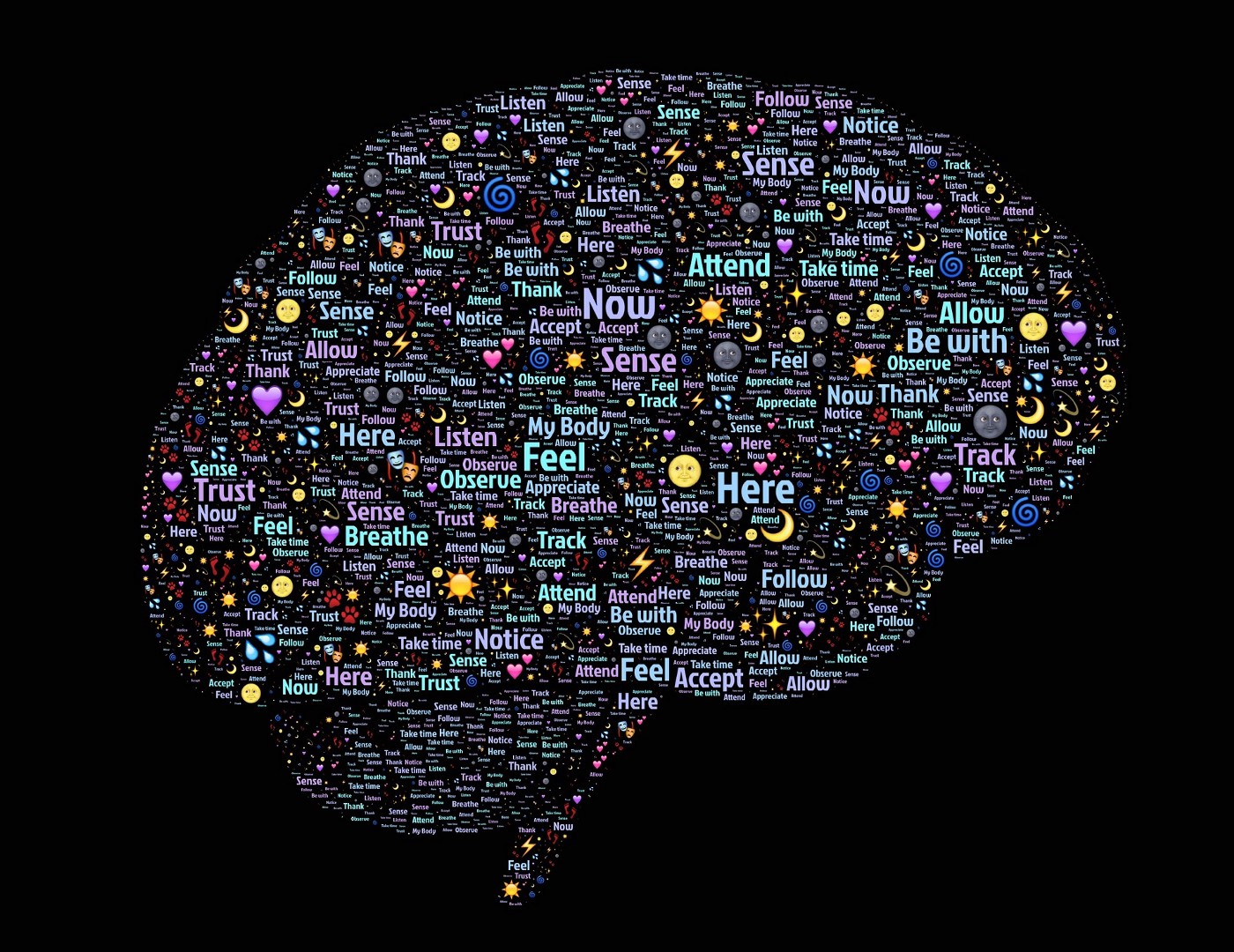 Image source/Fancied FactsResearch has suggested that the human brain consists of a monumental 86 billion neurons. Each neuron forms connections to other neurons, which potentially could add up to 1 quadrillion connections - thats a million million! Over time these neurons will combine and increase your storage capacity.
Image source/Fancied FactsResearch has suggested that the human brain consists of a monumental 86 billion neurons. Each neuron forms connections to other neurons, which potentially could add up to 1 quadrillion connections - thats a million million! Over time these neurons will combine and increase your storage capacity.Advertisement
4. Only using 10% of our brain is a myth
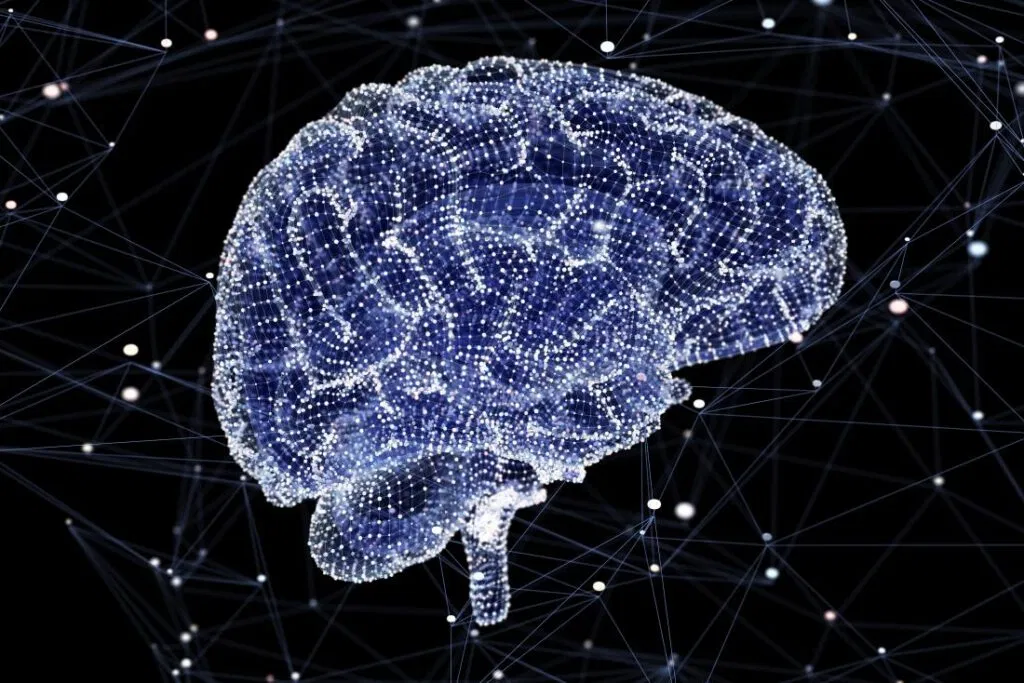 Image source/Medical News TodayYou've probably heard before that we only use 10% of our brain - this is obviously wrong. We are constantly using all of our brain just to carry out everyday functions, whether thats opening your door or driving your car. We even use more than 10% just when we are sleeping, so that tale you heard is nothing more than a myth.
Image source/Medical News TodayYou've probably heard before that we only use 10% of our brain - this is obviously wrong. We are constantly using all of our brain just to carry out everyday functions, whether thats opening your door or driving your car. We even use more than 10% just when we are sleeping, so that tale you heard is nothing more than a myth.Advertisement
5. A human brain could power a lightbulb
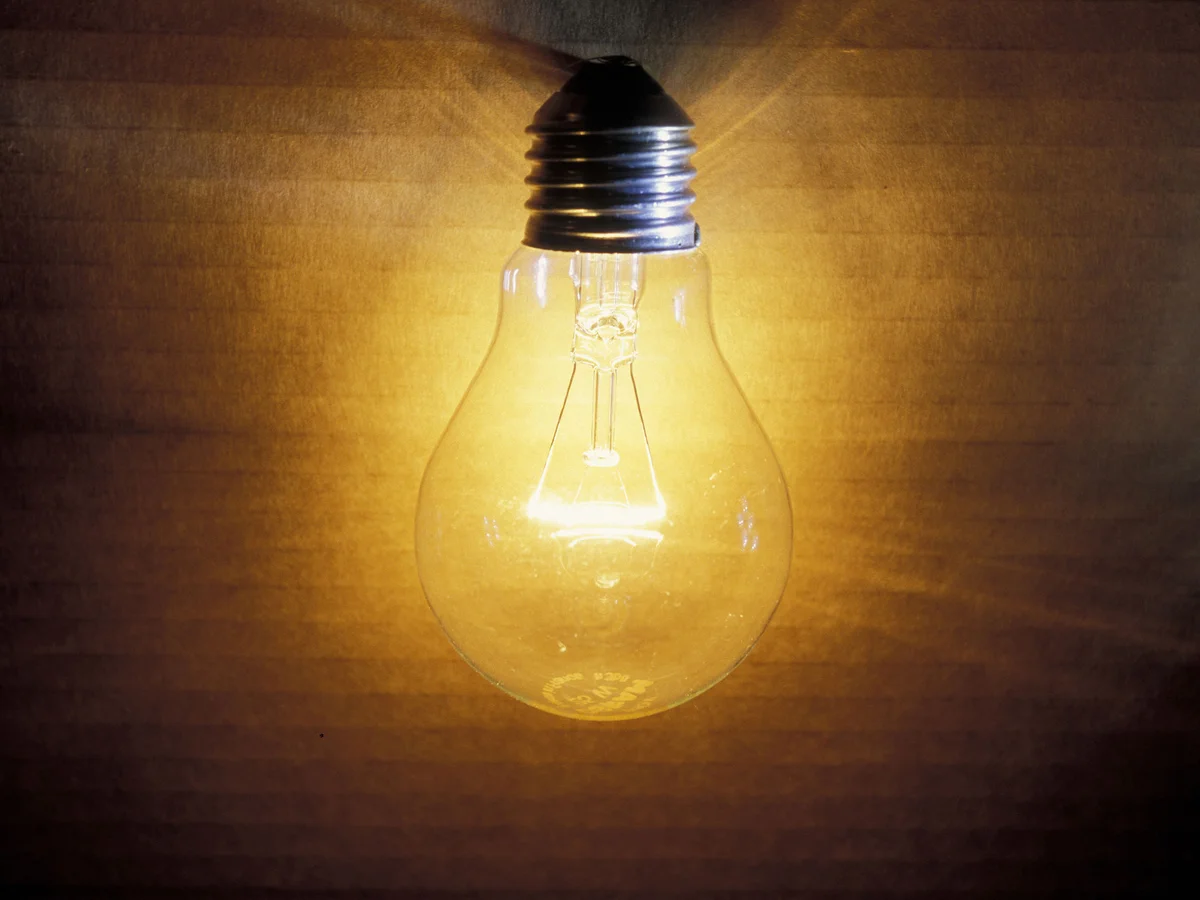 Image source/The IndependentOur brains are truly incredible, they are that incredible that they generate about 23 watts of power. This amount is enough to power a regular lightbulb, which is insane! There is no wonder that after a long, mentally demanding task you are absolutely exhausted, your brain needs some rest.
Image source/The IndependentOur brains are truly incredible, they are that incredible that they generate about 23 watts of power. This amount is enough to power a regular lightbulb, which is insane! There is no wonder that after a long, mentally demanding task you are absolutely exhausted, your brain needs some rest.Advertisement
6. Your brain doesn't feel any pain
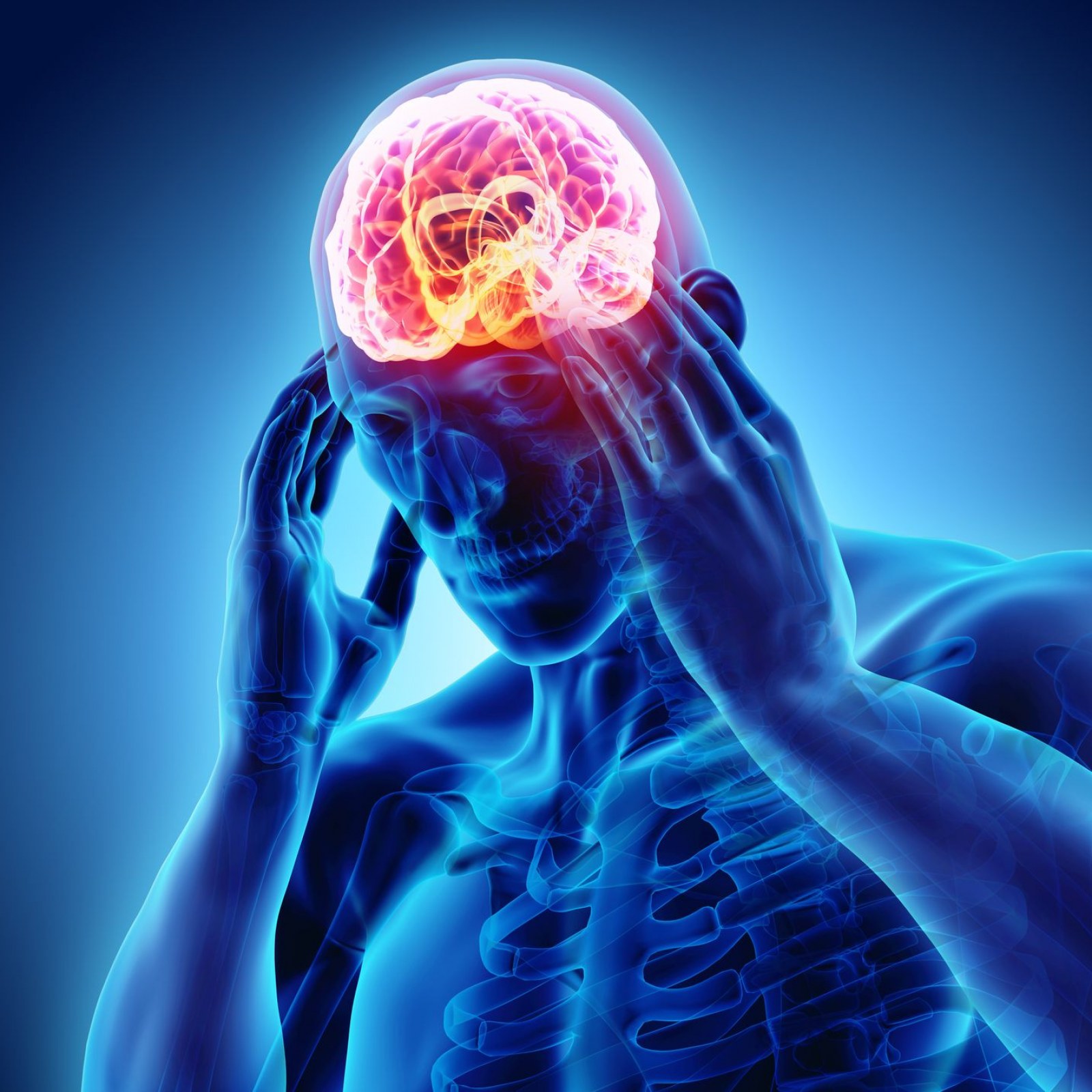 Image source/NewsweekAlthough pain is obviously processed throughout the brain, the organ itself actually feels no pain. You may be asking, "what about brain freeze?" well that isn't actually your brain that is in pain, it's coming from the root of your mouth. If your brain actually froze you would be in some pretty serious trouble.
Image source/NewsweekAlthough pain is obviously processed throughout the brain, the organ itself actually feels no pain. You may be asking, "what about brain freeze?" well that isn't actually your brain that is in pain, it's coming from the root of your mouth. If your brain actually froze you would be in some pretty serious trouble.Advertisement
7. The human brain weighs 3 pounds
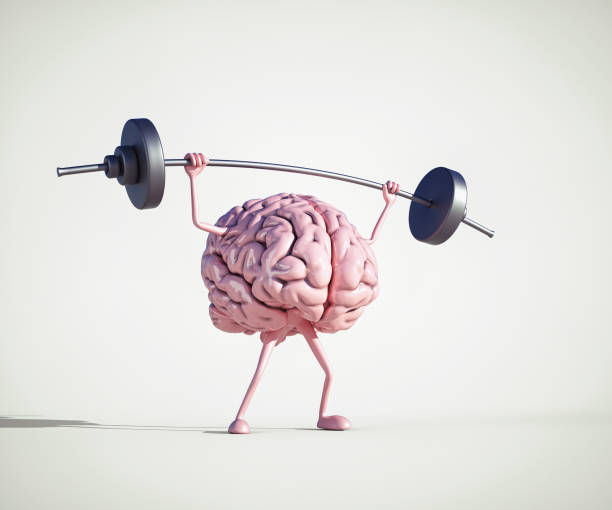 Image source/iStockA typical human brain weighs in around 3 pounds, this is equivalent to as much as half a gallon of milk. It's crazy to think that billions of neurons are packed into to such a small weight. However, a big brain doesn't necessarily correlate to intelligence. Men usually seem to have bigger brains than women.
Image source/iStockA typical human brain weighs in around 3 pounds, this is equivalent to as much as half a gallon of milk. It's crazy to think that billions of neurons are packed into to such a small weight. However, a big brain doesn't necessarily correlate to intelligence. Men usually seem to have bigger brains than women.Advertisement
8. Your brain isn't fully formed until you're 25
 Image source/LovemoneyYour brain is constantly growing all the way until you're 25, so for the audience over 25 we hate to break it to you but your brain is fully developed. The brain develops initially form the back and develops its way forwards. Therefore your frontal lobes, which are responsible for planning and reasoning, are the last to strengthen connections.
Image source/LovemoneyYour brain is constantly growing all the way until you're 25, so for the audience over 25 we hate to break it to you but your brain is fully developed. The brain develops initially form the back and develops its way forwards. Therefore your frontal lobes, which are responsible for planning and reasoning, are the last to strengthen connections.Advertisement
9. Your brain is pretty hot
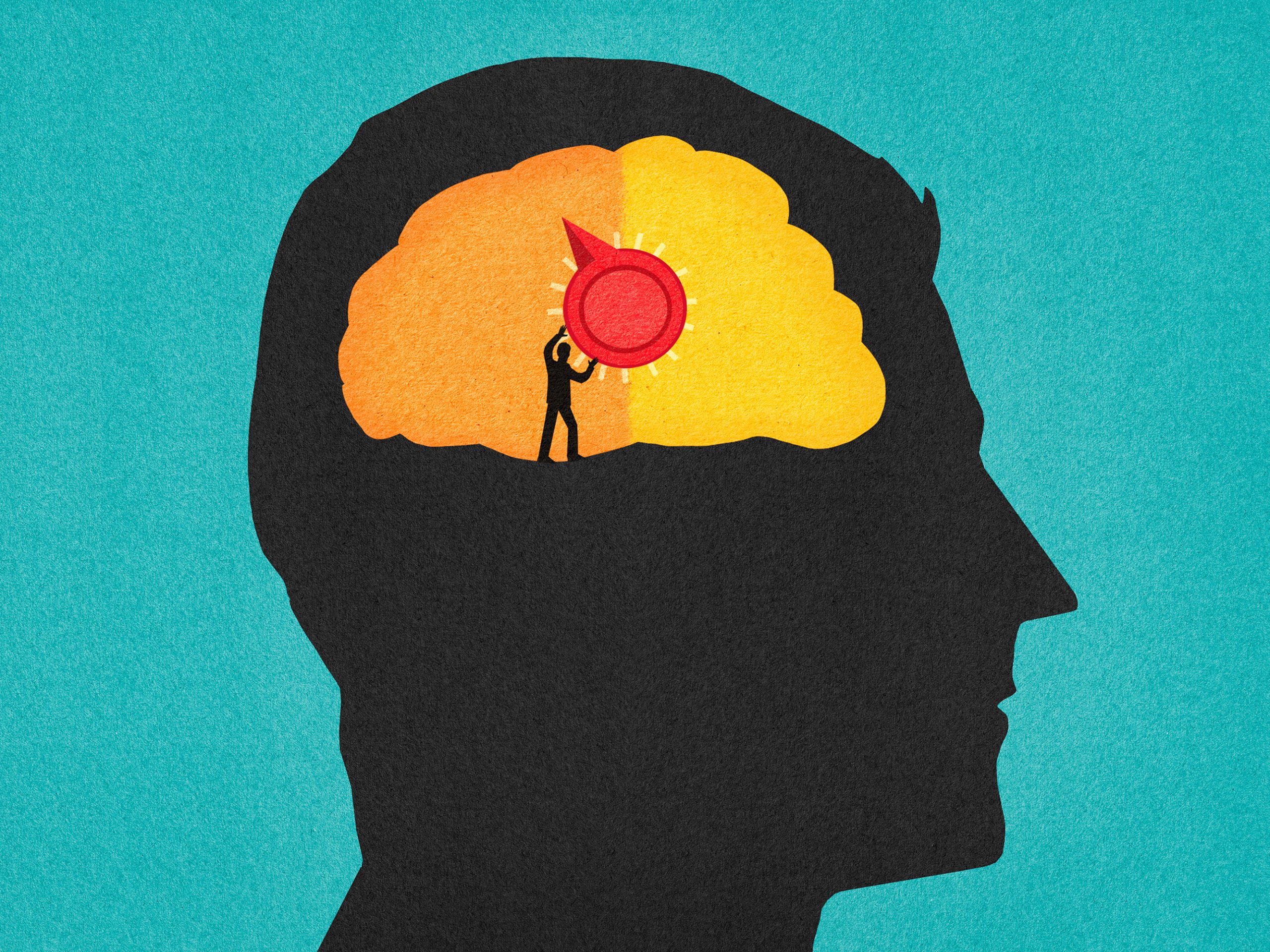 Image source/NPRYou may be surprised to hear that your brain temperature is typically 1.5-2 degrees Celsius hotter than your core body temperature. Research has suggested that heathy brains can function at over 39 degrees Celsius which is significantly warmer then your core body temperature.
Image source/NPRYou may be surprised to hear that your brain temperature is typically 1.5-2 degrees Celsius hotter than your core body temperature. Research has suggested that heathy brains can function at over 39 degrees Celsius which is significantly warmer then your core body temperature.Advertisement
10. Your brain can change memories
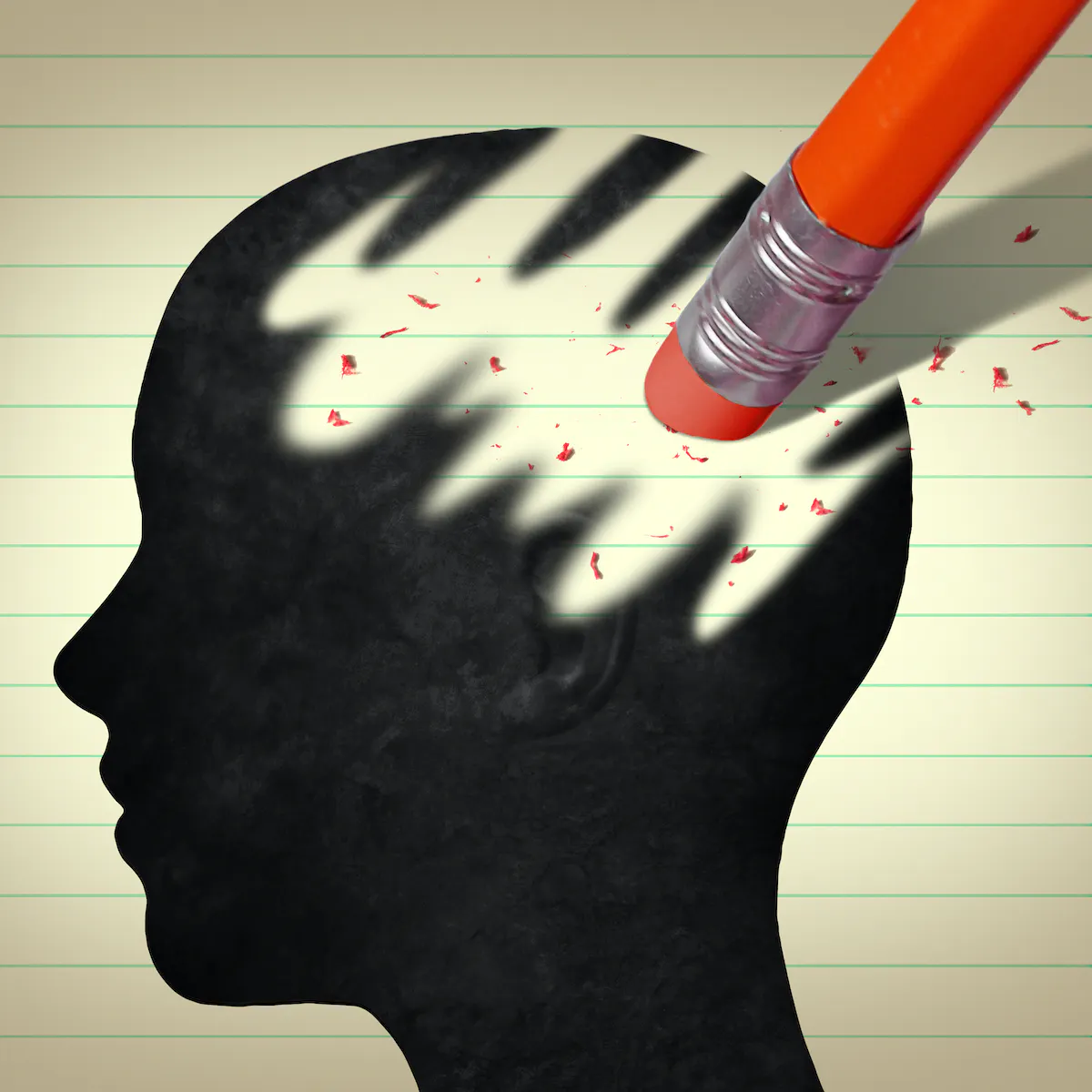 Image source/The ConversationThe brain is an incredible organ, but it isn't quite perfect. Memories you form can be surprisingly unreliable and can even change over time. Many factors can affect this including emotions, motivation, cues, and frequency of remembering. All of these factors impact how accurate your memories are and how clearly you visualise them.
Image source/The ConversationThe brain is an incredible organ, but it isn't quite perfect. Memories you form can be surprisingly unreliable and can even change over time. Many factors can affect this including emotions, motivation, cues, and frequency of remembering. All of these factors impact how accurate your memories are and how clearly you visualise them.Advertisement
11. Your brain has a consistency similar to jello
 Image source/StylecrazeAs the human brain is predominantly made of fat, it naturally is soft and squishy - just like jello. When you see a brain in a museum, it may appear to be a lot more solid than you would expect. This will likely be due to the preservation which alters it's consistency. So next time you're eating jello, just picture that's what your brain feels like!
Image source/StylecrazeAs the human brain is predominantly made of fat, it naturally is soft and squishy - just like jello. When you see a brain in a museum, it may appear to be a lot more solid than you would expect. This will likely be due to the preservation which alters it's consistency. So next time you're eating jello, just picture that's what your brain feels like!Advertisement
12. Your brain doubles in size in the first year of life
 Image source/BabyCenterWhen you're first born, your brain will only be approximately a quarter the size of when it's fully grown. However, in just your first year of life your brain will double in size. Then by the time you're five, your Brian will be nearly 90% of the size it will be in adulthood. This is why it.s so important to nurture and look after babies, as that's when their brain is developing the most.
Image source/BabyCenterWhen you're first born, your brain will only be approximately a quarter the size of when it's fully grown. However, in just your first year of life your brain will double in size. Then by the time you're five, your Brian will be nearly 90% of the size it will be in adulthood. This is why it.s so important to nurture and look after babies, as that's when their brain is developing the most.Advertisement
13. Your brain uses 20% of the body's oxygen and blood
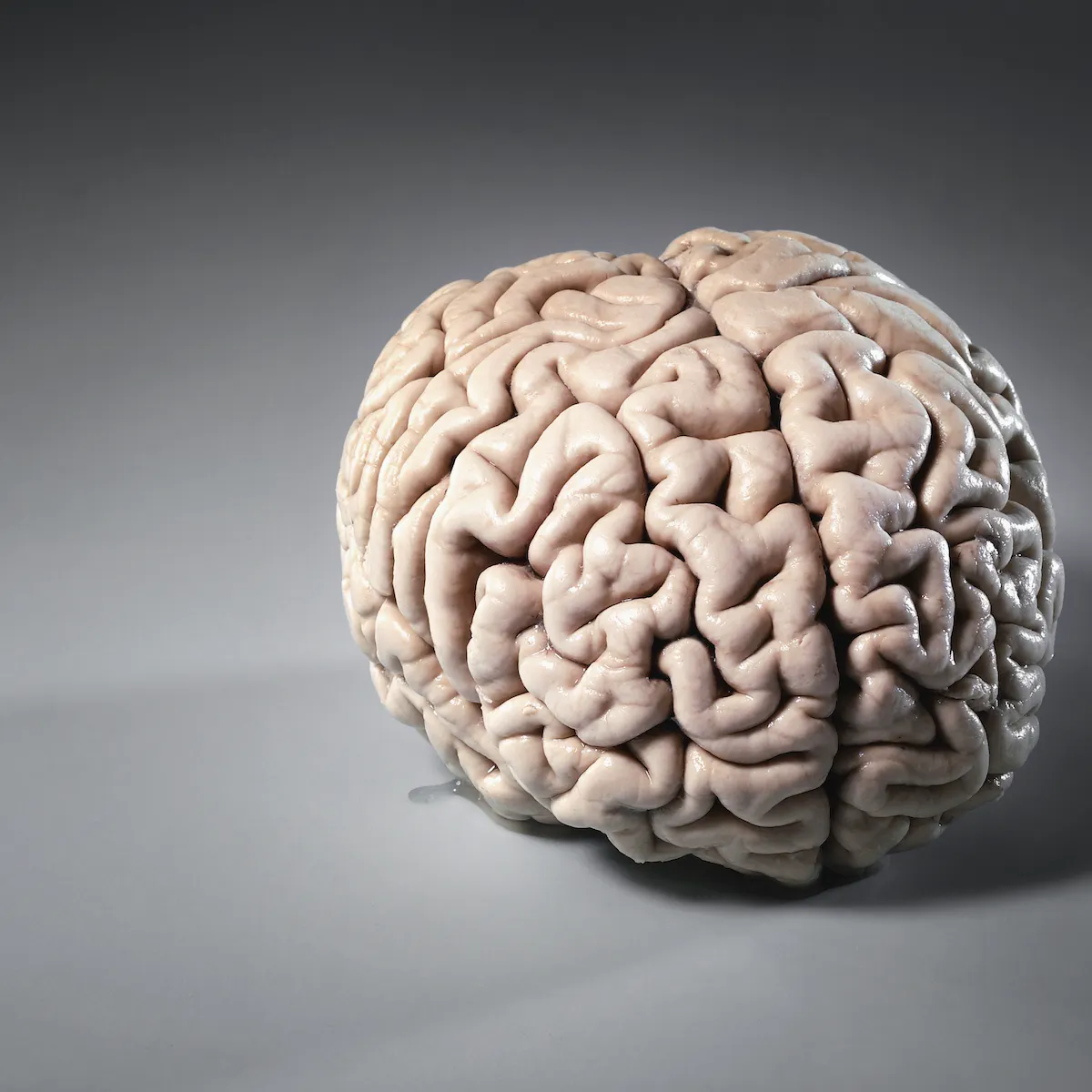 Image source/The ConversationYes, you read that right! That little three pound organ in your head uses over one fifth of your body's blood and oxygen. It may seem staggering at first but when you realise how much work it does and the energy it requires, there's no shock that it uses such high amounts. It is the powerhouse of your body at the end of the day.
Image source/The ConversationYes, you read that right! That little three pound organ in your head uses over one fifth of your body's blood and oxygen. It may seem staggering at first but when you realise how much work it does and the energy it requires, there's no shock that it uses such high amounts. It is the powerhouse of your body at the end of the day.Advertisement
14. Your brain cannot do more than one task at a time
 Image source/ForbesMany people believe they can multitask, but the human brain literally cannot concentrate on two things at the same time, neither can it learn two things at once. Your brain is clever, it can quickly toggle between tasks, making you seem like you're doing two things at once - in reality you're not.
Image source/ForbesMany people believe they can multitask, but the human brain literally cannot concentrate on two things at the same time, neither can it learn two things at once. Your brain is clever, it can quickly toggle between tasks, making you seem like you're doing two things at once - in reality you're not.Advertisement
15. A brain freeze is really a sphenopalatine ganglioneuralgia
 Image source/Live ScienceCongratulations to those who managed to pronounce that correctly, we will just stick to brain freeze for simplification. A brain freeze happens when you eat or drink something cold and it chills the blood vessels in the back of your throat, including those that take blood into your brain. The contraction and opening up of these blood vessels due to the cold is what causes the pain.
Image source/Live ScienceCongratulations to those who managed to pronounce that correctly, we will just stick to brain freeze for simplification. A brain freeze happens when you eat or drink something cold and it chills the blood vessels in the back of your throat, including those that take blood into your brain. The contraction and opening up of these blood vessels due to the cold is what causes the pain.Advertisement
16. Your brain could store the entire internet (in theory)
 Image source/Network WorldAs you probably know, your brain can store a lot of information, and I mean A LOT. But you probably didn't expect it to be as much as the entire internet. A study by researchers at the Salk Institution for Biological Studies found that our brain has an awful lot more storage than we anticipated. However, this doesn't mean we can memorise the entire internet!
Image source/Network WorldAs you probably know, your brain can store a lot of information, and I mean A LOT. But you probably didn't expect it to be as much as the entire internet. A study by researchers at the Salk Institution for Biological Studies found that our brain has an awful lot more storage than we anticipated. However, this doesn't mean we can memorise the entire internet!Advertisement
17. Introvert and extrovert brains physically differ
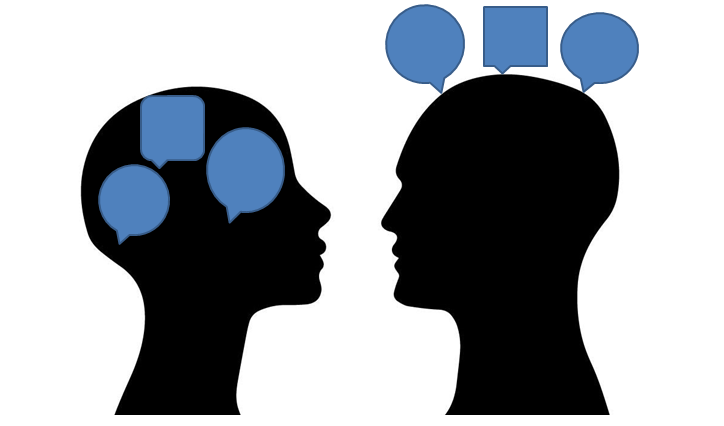 Image source/Ongig BlogSomething really fascinating has shown up from MRI scans that suggests that introverts and extroverts have measurable physical changes in their brains. The brain of the extrovert showed a far more active dopamine reward network, whereas in the introvert's brain, more grey matter was present.
Image source/Ongig BlogSomething really fascinating has shown up from MRI scans that suggests that introverts and extroverts have measurable physical changes in their brains. The brain of the extrovert showed a far more active dopamine reward network, whereas in the introvert's brain, more grey matter was present.Advertisement
18. Your brain can shrink
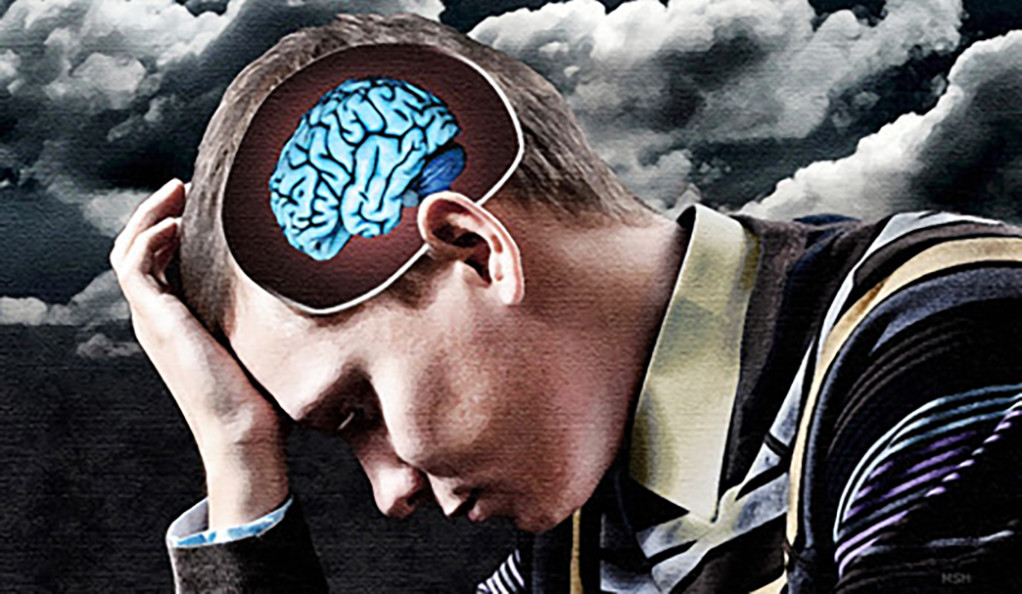 Image source/YaleNewsYour physical brain is made of 60% fat, but your overall brain is made up of around 73% water. Your brain like any other organ requires hydration, in the same way your muscles do, so when you're exercising and sweating profusely your brain is losing water. Severe dehydration can actually cause you're brain function to decreases and shrink in size equivalent to one year of ageing!
Image source/YaleNewsYour physical brain is made of 60% fat, but your overall brain is made up of around 73% water. Your brain like any other organ requires hydration, in the same way your muscles do, so when you're exercising and sweating profusely your brain is losing water. Severe dehydration can actually cause you're brain function to decreases and shrink in size equivalent to one year of ageing!Advertisement
19. You can't tickle yourself
 Image source/The ListHave you ever wondered why you can't ever tickle yourself? It's because your brain anticipates your own touch, resulting in it cancelling out the pressure you apply. Some people will be devastated to hear this, but for those who hate being tickled you're probably more than glad to know this.
Image source/The ListHave you ever wondered why you can't ever tickle yourself? It's because your brain anticipates your own touch, resulting in it cancelling out the pressure you apply. Some people will be devastated to hear this, but for those who hate being tickled you're probably more than glad to know this.Advertisement
20. It requires a constant supply of oxygen
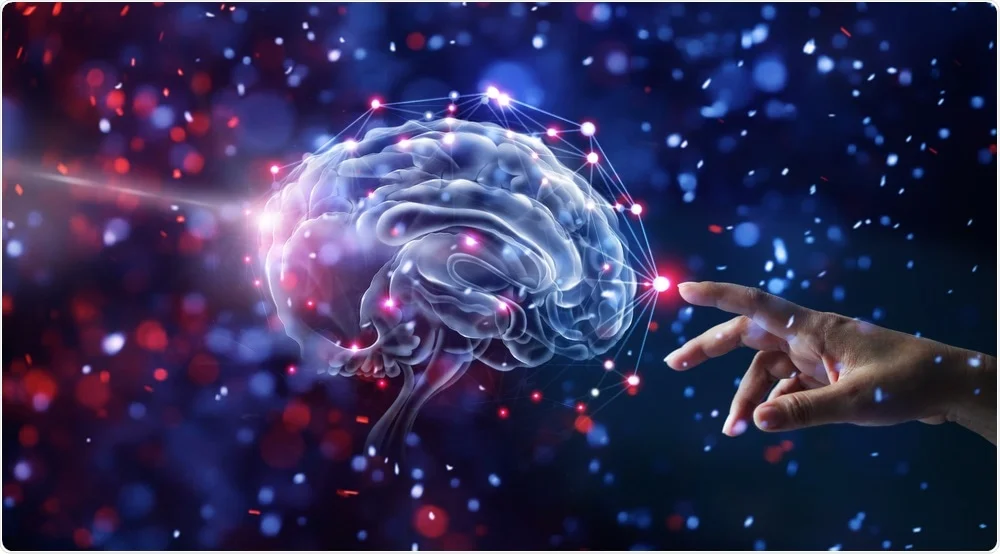 Image source/News MedicalUsually the you think of the importance of oxygen, you straight away think about lungs and muscles, well your brain also requires a constant oxygen supply. A lack of oxygen to the brain can be catastrophic, just five minutes with limited oxygen can cause multiple brain cells to die and could lead to major brain damage.
Image source/News MedicalUsually the you think of the importance of oxygen, you straight away think about lungs and muscles, well your brain also requires a constant oxygen supply. A lack of oxygen to the brain can be catastrophic, just five minutes with limited oxygen can cause multiple brain cells to die and could lead to major brain damage.Advertisement
21. Traumatic events affect your brains function
 Image source/Norwegian SciTech NewsTraumatic events can massively affect your brain's ability to remember details. This is why eyewitness accounts of criminal suspects are only about 50% accurate. The trauma you're under mixed with the person being unfamiliar makes it very difficult for your brain to remember specific details.
Image source/Norwegian SciTech NewsTraumatic events can massively affect your brain's ability to remember details. This is why eyewitness accounts of criminal suspects are only about 50% accurate. The trauma you're under mixed with the person being unfamiliar makes it very difficult for your brain to remember specific details.Advertisement
22. Alcohol can permanently damage your brain
 Image source/Brain BloggerIt's no mystery that alcohol affects our brain. The affects vary from lack of coordination to our ability to make decisions. However, when it comes to heavy usage over a prolonged space of time, alcohol has been proven to cause irreversible damage to cognitive function and memory. So next time you and whoever decide to get black out drunk, be aware of the potential consequences.
Image source/Brain BloggerIt's no mystery that alcohol affects our brain. The affects vary from lack of coordination to our ability to make decisions. However, when it comes to heavy usage over a prolonged space of time, alcohol has been proven to cause irreversible damage to cognitive function and memory. So next time you and whoever decide to get black out drunk, be aware of the potential consequences.Advertisement
23. Your brain is smaller than your ancestors
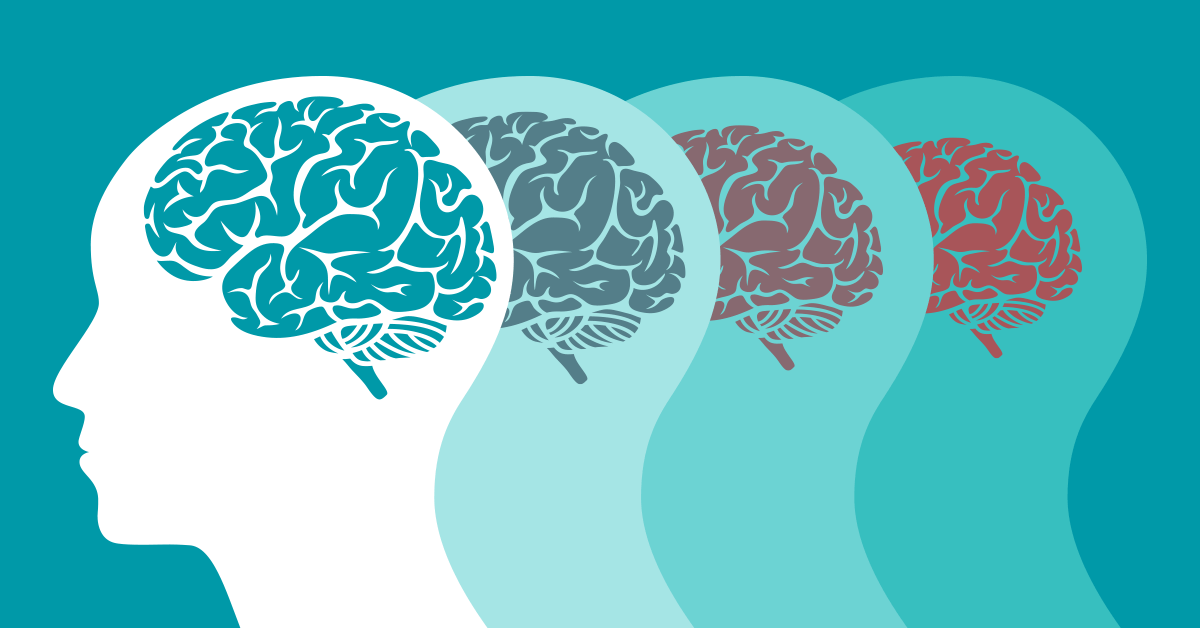 Image source/Campaign for Better HearingOne of the scariest things you didn't now about the brain is that research suggests its actually shrinking as we evolve! Skeletal evidence from every inhabited continent supports this theory. Don't panic, this doesn't mean we are getting less intelligent, it's likely down to the fact the human body has shrunk in size over the years.
Image source/Campaign for Better HearingOne of the scariest things you didn't now about the brain is that research suggests its actually shrinking as we evolve! Skeletal evidence from every inhabited continent supports this theory. Don't panic, this doesn't mean we are getting less intelligent, it's likely down to the fact the human body has shrunk in size over the years.Advertisement
24. Your eyeballs are an extension of your brain
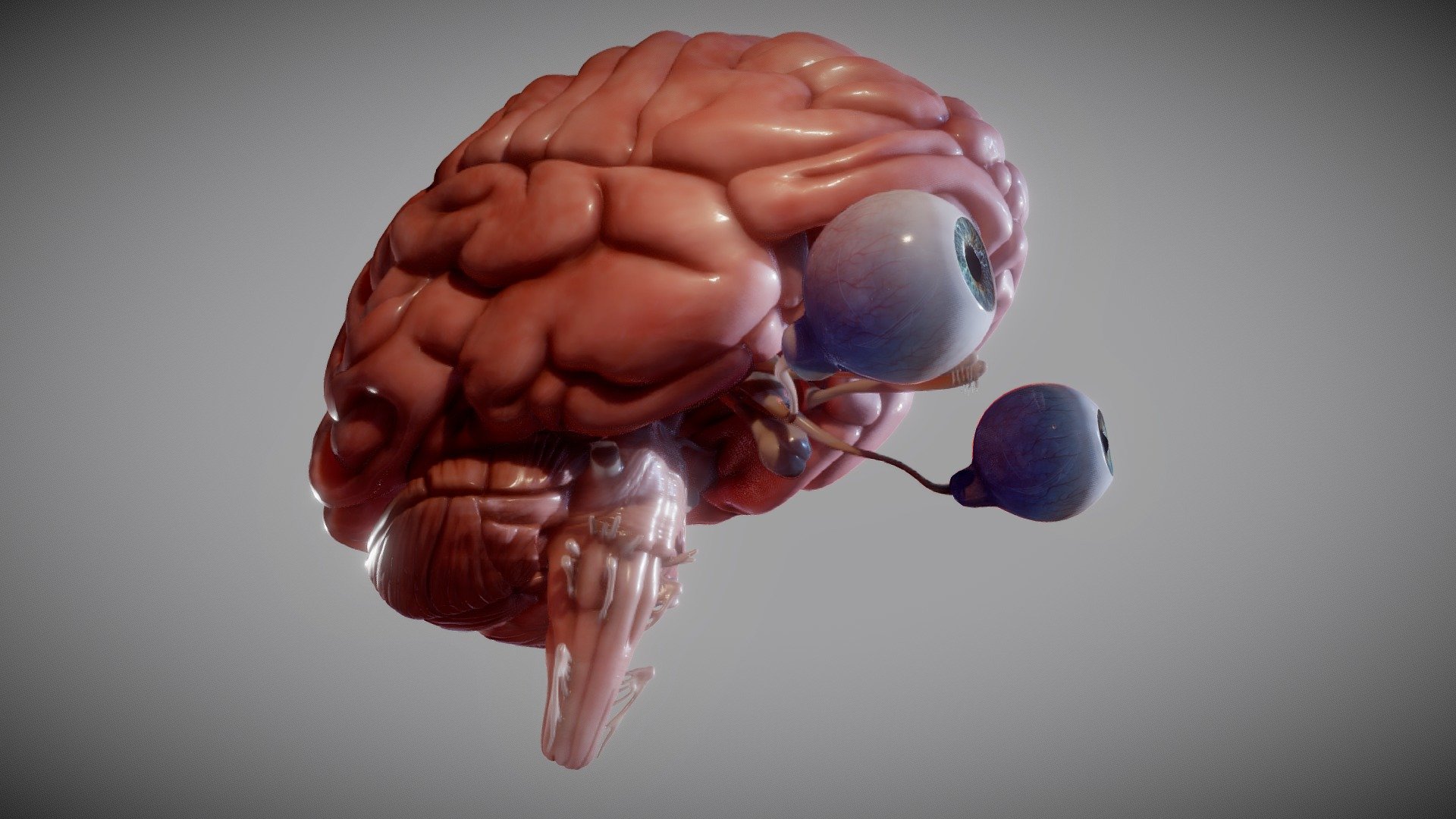 Image source/SketchfabIt seems obvious when you think about it but it's still bizarre that your eyes are directly connected to your brain. The retina and optic nerve both share the same development origins as the brain, therefore the eyes are a relatively simple organ compared to the brain that can help us study the central nervous system.
Image source/SketchfabIt seems obvious when you think about it but it's still bizarre that your eyes are directly connected to your brain. The retina and optic nerve both share the same development origins as the brain, therefore the eyes are a relatively simple organ compared to the brain that can help us study the central nervous system.Advertisement
25. An orgasm activates around 30 major systems in your brain
 Image source/HealthlineOrgasms don't just stimulate areas in your brain related to touch, they have been seen to also activate seemingly unrelated regions. Some examples are the limbic system, hypothalamus and the prefrontal cortex. So remember next time you and your partner want to get it on, you're giving your brain a good workout as well!
Image source/HealthlineOrgasms don't just stimulate areas in your brain related to touch, they have been seen to also activate seemingly unrelated regions. Some examples are the limbic system, hypothalamus and the prefrontal cortex. So remember next time you and your partner want to get it on, you're giving your brain a good workout as well!Advertisement
26. Brain scans can show when people are in love
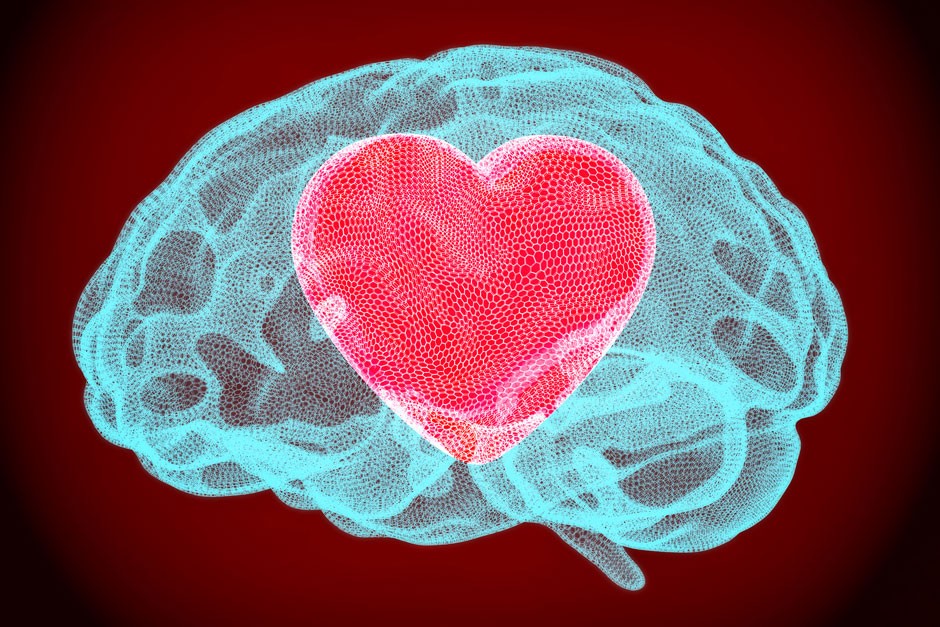 Image source/BBC Science Focus MagazineThose of you that thought being "in love" is merely just a term people use, you may be shocked when you look at some MRI scans. For people who are romantically in love, MRI scans have shown increased activity in the areas associated with producing dopamine and other feel good hormones.
Image source/BBC Science Focus MagazineThose of you that thought being "in love" is merely just a term people use, you may be shocked when you look at some MRI scans. For people who are romantically in love, MRI scans have shown increased activity in the areas associated with producing dopamine and other feel good hormones.Advertisement
27. Half our brain could be removed with little effect
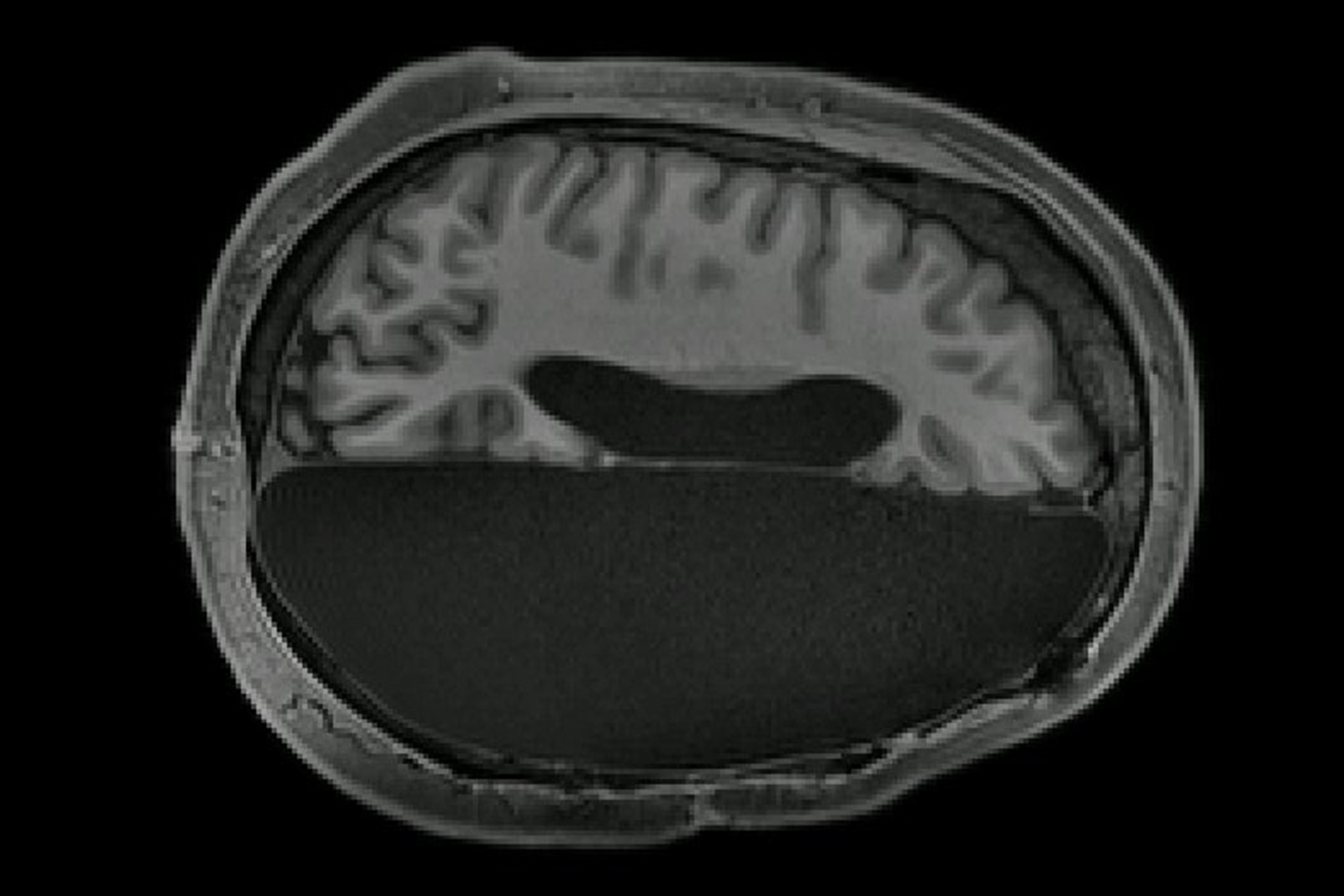 Image source/The SunThis might sound ridiculous, but is in fact true! surgically removing half the brain, also known as a hemispherectomy, is a very rare neurosurgical procedure that can treat certain disorders. While you will survive this procedure, it will affect your brain in someway. You will likely lose some cognitive abilities and potentially a loss in memory.
Image source/The SunThis might sound ridiculous, but is in fact true! surgically removing half the brain, also known as a hemispherectomy, is a very rare neurosurgical procedure that can treat certain disorders. While you will survive this procedure, it will affect your brain in someway. You will likely lose some cognitive abilities and potentially a loss in memory.Advertisement
28. Short term memory lasts around 20 to 30 seconds
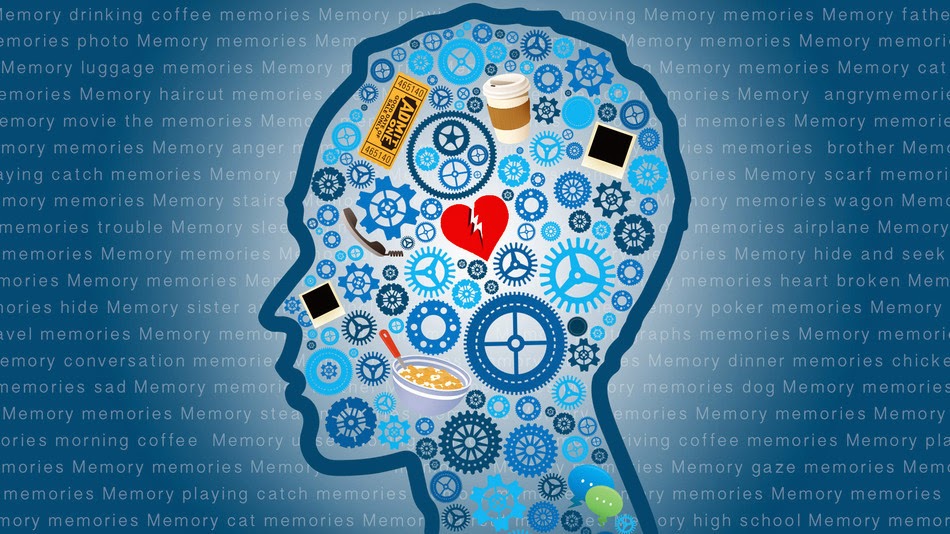 Image source/Psychology SpotEver wondered how long your short term memory really lasts? Well you now know that your brain typically hods small amounts of information in an available state for easy access for around 20 to 30 seconds. So when you read out a number, you will remember it half about 30 seconds, but if you become distracted you will likely forget it.
Image source/Psychology SpotEver wondered how long your short term memory really lasts? Well you now know that your brain typically hods small amounts of information in an available state for easy access for around 20 to 30 seconds. So when you read out a number, you will remember it half about 30 seconds, but if you become distracted you will likely forget it.Advertisement
29. Computer games may help your brain
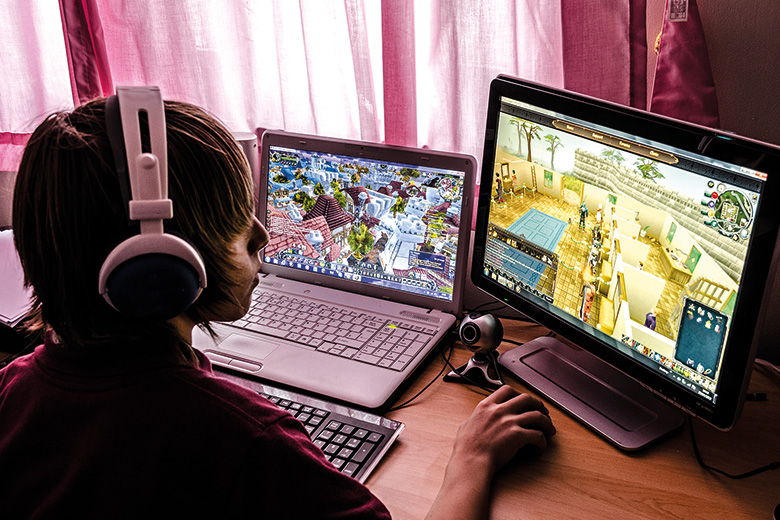 Image source/Times Higher EducationComputer games have been seen to positively affect your brains cognitive skills. Children who play video games generally perform well in school, however excessive amounts of screen time can be harmful. So if you're big into your video games, make sure you're not over doing it!
Image source/Times Higher EducationComputer games have been seen to positively affect your brains cognitive skills. Children who play video games generally perform well in school, however excessive amounts of screen time can be harmful. So if you're big into your video games, make sure you're not over doing it!Advertisement
30. Your brain has taste receptor cells inside it
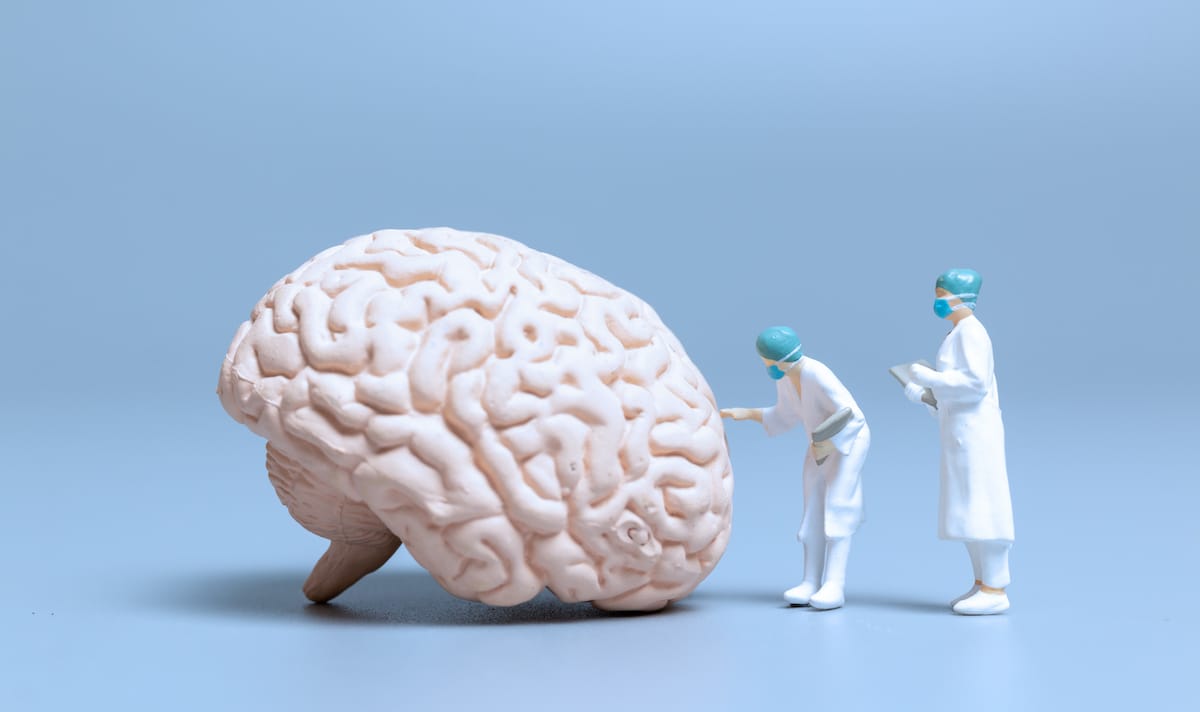 Image source/NR TimesYou would probably imagine that it' your tongue that gives you the sensation of taste, but ultimately it's all in your brain. The taste receptors in your tongue detect bitter and sweet, and everything else, but the brain is what gives meaning to these chemicals to allow you the sensation of taste
Image source/NR TimesYou would probably imagine that it' your tongue that gives you the sensation of taste, but ultimately it's all in your brain. The taste receptors in your tongue detect bitter and sweet, and everything else, but the brain is what gives meaning to these chemicals to allow you the sensation of tasteAdvertisement
31. Your Brain Is About 2% Of Your Body Weight
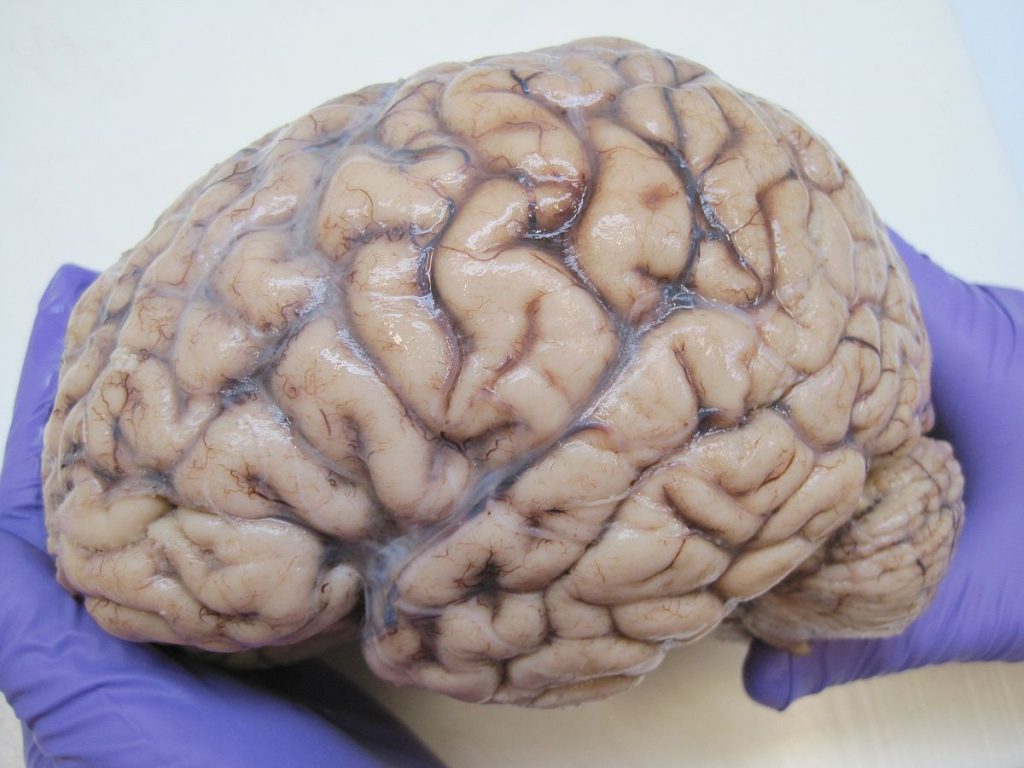 Image Source / WikipediaYour actual head weighs about 10 pounds in total, and the average brain is around 2% of your total body weight. An average brain can also be about 6 inches in length. But brain size isn't actually related to intelligence, so if you're currently trying to measure your head, don't worry about it!
Image Source / WikipediaYour actual head weighs about 10 pounds in total, and the average brain is around 2% of your total body weight. An average brain can also be about 6 inches in length. But brain size isn't actually related to intelligence, so if you're currently trying to measure your head, don't worry about it!Advertisement
32. A Patient Can Be Fully Conscious For Brain Surgery
 Image Source / NPRThis one is a scary thought, but it's true - you can be conscious while having brain surgery performed on you. The reason for this is one we mentioned earlier: that the brain can't feel pain. That means, without anaesthesia, you're still not going to be able to feel the pain of surgery if it's done on your brain when you're awake.
Image Source / NPRThis one is a scary thought, but it's true - you can be conscious while having brain surgery performed on you. The reason for this is one we mentioned earlier: that the brain can't feel pain. That means, without anaesthesia, you're still not going to be able to feel the pain of surgery if it's done on your brain when you're awake.Advertisement
33. And There Is Actually A Documented Successful Brain Surgery From Thousands Of Years Ago
 Image Source / Live ScienceBack in very, very olden times, surgical procedures on the brain were known as Trepanation, where a hole would be drilled into the skull if there was bleeding on the brain, or excess fluid, in order to relieve the pressure. Around 5,400 years ago, the first documented case of this was done on a cow.
Image Source / Live ScienceBack in very, very olden times, surgical procedures on the brain were known as Trepanation, where a hole would be drilled into the skull if there was bleeding on the brain, or excess fluid, in order to relieve the pressure. Around 5,400 years ago, the first documented case of this was done on a cow.Advertisement
34. Enough Electricity From Your Brain Is Produced To Light Up A Bulb
 Image Source / Energy EducationA lot of people forget that the body is run on electricity (electrical currents passed between cells). It only follows, then, that our super duper brains are producing electricity to perform what it needs to for our bodies. Although the exact wattage of electricity is up for debate, it's figured that it's enough to power a small lightbulb.
Image Source / Energy EducationA lot of people forget that the body is run on electricity (electrical currents passed between cells). It only follows, then, that our super duper brains are producing electricity to perform what it needs to for our bodies. Although the exact wattage of electricity is up for debate, it's figured that it's enough to power a small lightbulb.Advertisement
35. Some People Don't Hear A 'Voice' For Their Thoughts
 Image Source / PexelsMost people would agree that when they think, they hear their own voice in their head as an internal monologue. But did you know that some people don't actually hear a voice at all? For these people who don't have that 'inner voice', their thoughts are processed through concepts rather than a speaking voice.
Image Source / PexelsMost people would agree that when they think, they hear their own voice in their head as an internal monologue. But did you know that some people don't actually hear a voice at all? For these people who don't have that 'inner voice', their thoughts are processed through concepts rather than a speaking voice.Advertisement
36. And Some People Don't Have A 'Mind's Eye' Either
 Image Source / The New York TimesThe condition called Aphantasia means that a person doesn't have a 'mind's eye', where they're able to see things in their mind. Some people simply can't think up a mental image. So imagine having no internal monologue voice as well as not having a mind's eye!
Image Source / The New York TimesThe condition called Aphantasia means that a person doesn't have a 'mind's eye', where they're able to see things in their mind. Some people simply can't think up a mental image. So imagine having no internal monologue voice as well as not having a mind's eye!Advertisement
37. You Think At A Speed Of 250 Miles Per Hour
 Image Source / Auto | HowStuffWorksYou may have had some 'racy' thoughts in your lifetime, but did you know this was the speed you think? The neurons in your brain, which are constantly moving back and forth, are suggested by certain studies to be moving at a rate of up to 270 miles per hour!
Image Source / Auto | HowStuffWorksYou may have had some 'racy' thoughts in your lifetime, but did you know this was the speed you think? The neurons in your brain, which are constantly moving back and forth, are suggested by certain studies to be moving at a rate of up to 270 miles per hour!Advertisement
38. Yawning Actually Cools Down Your Brain
 Image Source / ABCA lot of people have been led to believe that yawning increases oxygen in the brain (so when you're tired it's like you're sucking in more oxygen to make your brain less sluggish). But actually it's also been suggested that yawning cools down your brain, when you take a deep inhale of the cool air around you, lowering the temperature in your brain.
Image Source / ABCA lot of people have been led to believe that yawning increases oxygen in the brain (so when you're tired it's like you're sucking in more oxygen to make your brain less sluggish). But actually it's also been suggested that yawning cools down your brain, when you take a deep inhale of the cool air around you, lowering the temperature in your brain.Advertisement
39. Your Brain Has About 100,000 Miles Of Blood Vessels
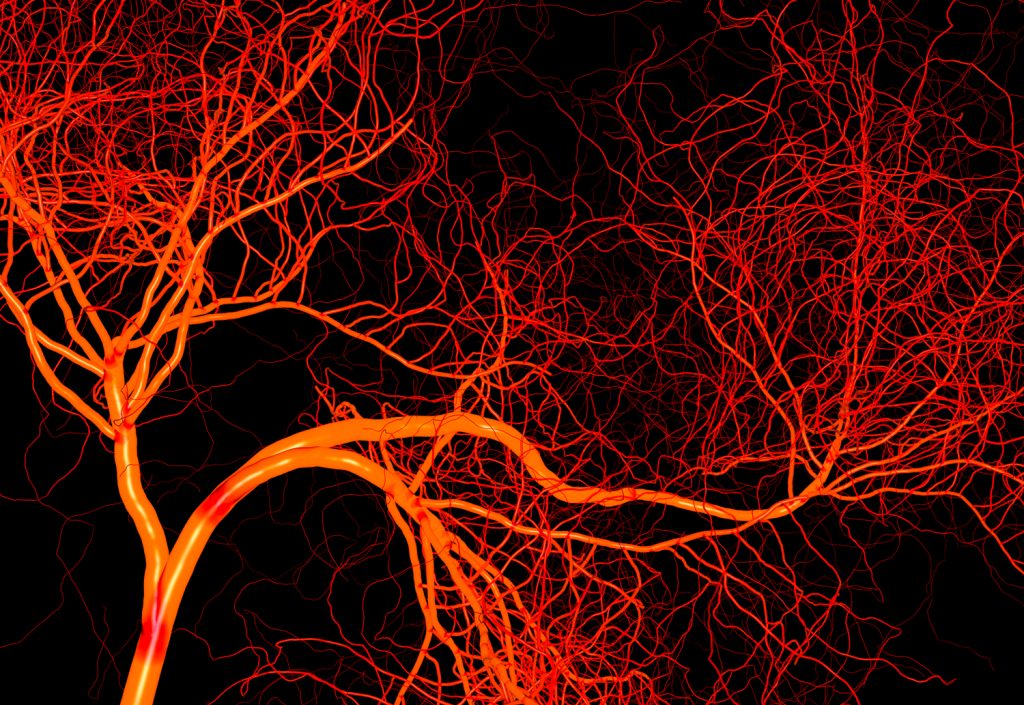 Image Source / The Franklin InstituteIf laid end to end, then the length of blood vessels in your brain would roughly equal around 100,000 miles! And if you're struggling to visualise that, that's long enough to run around the Earth four times. The reason all of this can fit inside a tiny space like our heads is because everything is neatly packed.
Image Source / The Franklin InstituteIf laid end to end, then the length of blood vessels in your brain would roughly equal around 100,000 miles! And if you're struggling to visualise that, that's long enough to run around the Earth four times. The reason all of this can fit inside a tiny space like our heads is because everything is neatly packed.Advertisement
40. Your Brain Can't Process Different Emotions
 Image Source / DazedWe're talking intense emotions here, like when you're so happy you burst into tears even though crying is supposed to be related to feeling sad. The brain has a part of it called the hypothalamus, which can sometimes get overwhelmed by heightened emotions and results in it panicking a bit and then just making us cry.
Image Source / DazedWe're talking intense emotions here, like when you're so happy you burst into tears even though crying is supposed to be related to feeling sad. The brain has a part of it called the hypothalamus, which can sometimes get overwhelmed by heightened emotions and results in it panicking a bit and then just making us cry.Advertisement
41. Having Everything At Our Fingertips Isn't Doing Our Brain Any Favours
 Image Source / WikipediaIt's probably no surprise to learn that the ease of the internet and being able to do everything instantly these days isn't helping our brains. This is because we're not working our brains when we're turning to a Google search instead of trying to work something out in our heads. Our brains may also be less equipped at storing information, because we're now conditioned to know we can get the answer to anything in an instant through the internet!
Image Source / WikipediaIt's probably no surprise to learn that the ease of the internet and being able to do everything instantly these days isn't helping our brains. This is because we're not working our brains when we're turning to a Google search instead of trying to work something out in our heads. Our brains may also be less equipped at storing information, because we're now conditioned to know we can get the answer to anything in an instant through the internet!Advertisement
42. Struggle To Sleep In A New Environment? That's Because Your Brain Is Protecting You
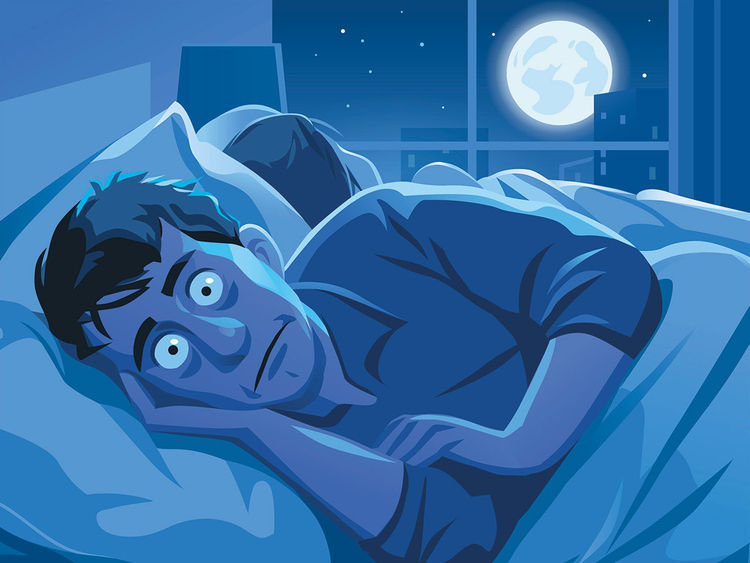 Image Source / Gulf NewsWe've all had that experience of not sleeping very well during the very first night in a new place, like a new house or a vacation room. That's because your brain is on the defence due to a new environment, so it's keeping you partly awake during the night so it can watch out for any potential threats, like new sounds and unfamiliar movements.
Image Source / Gulf NewsWe've all had that experience of not sleeping very well during the very first night in a new place, like a new house or a vacation room. That's because your brain is on the defence due to a new environment, so it's keeping you partly awake during the night so it can watch out for any potential threats, like new sounds and unfamiliar movements.Advertisement
43. Exercising Your Brain Is Important For Cognitive Function
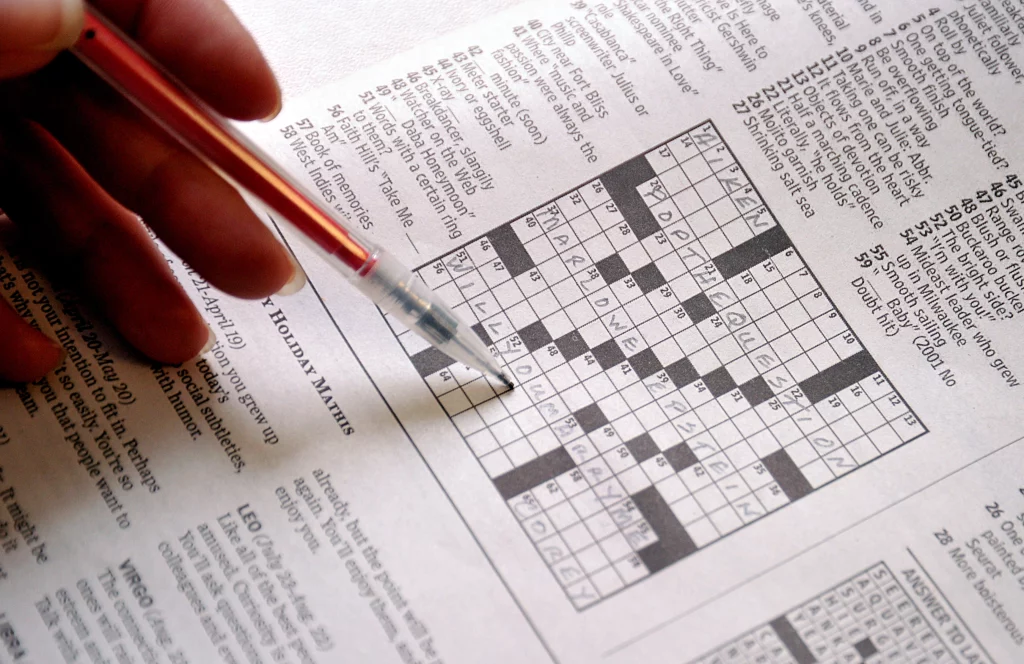 Image Source / Marketplace.orgThis one may not be surprising to hear, as your brain is a muscle after all, so exercising it can only do you some good! So by doing brain games like crosswords and puzzles, you're helping your brain's cognitive function, especially if you're getting older and make time to stretch out your brain muscles!
Image Source / Marketplace.orgThis one may not be surprising to hear, as your brain is a muscle after all, so exercising it can only do you some good! So by doing brain games like crosswords and puzzles, you're helping your brain's cognitive function, especially if you're getting older and make time to stretch out your brain muscles!Advertisement
44. If You Rely On Your Memory, You Might Have A Larger Brain
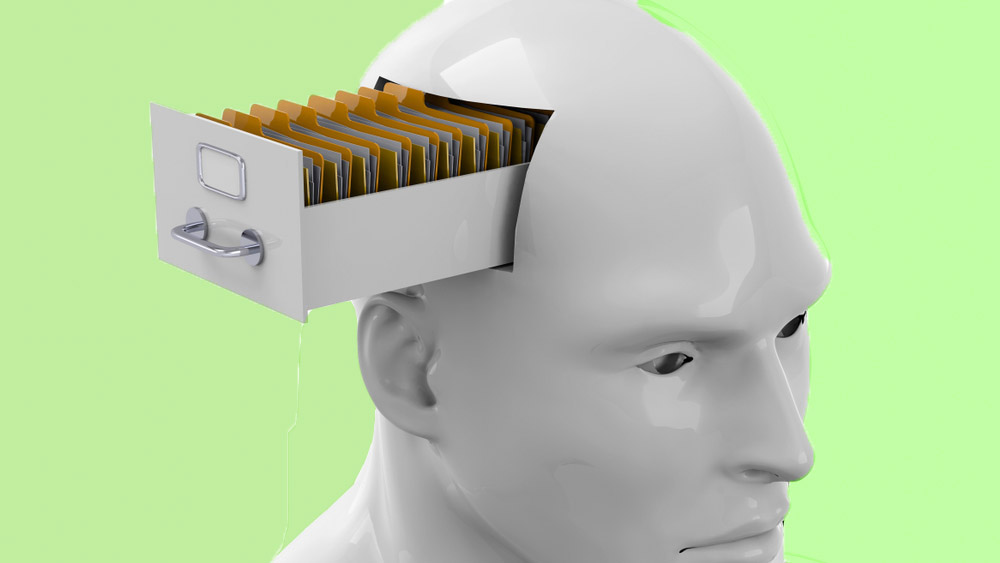 Image Source / Around the O - University of OregonIf you have a job or lifestyle which requires you to remember a lot of information on a daily basis, then your brain could be a bit bigger than someone who doesn't use their memory much. An example of someone who may need to remember complex information - and therefore have a bigger brain - can be a London cab driver who needs to know the routes.
Image Source / Around the O - University of OregonIf you have a job or lifestyle which requires you to remember a lot of information on a daily basis, then your brain could be a bit bigger than someone who doesn't use their memory much. An example of someone who may need to remember complex information - and therefore have a bigger brain - can be a London cab driver who needs to know the routes.Advertisement
45. Reading Out Loud Is Better For Learning
 Image Source / BBCReading out loud rather than in your head can actually help promote better brain development. This is mostly to do with children who are still developing these skills. Reading out loud means engaging more parts of your brain, such as speech, as well as enabling you to hear yourself speak and take in the information you're reading.
Image Source / BBCReading out loud rather than in your head can actually help promote better brain development. This is mostly to do with children who are still developing these skills. Reading out loud means engaging more parts of your brain, such as speech, as well as enabling you to hear yourself speak and take in the information you're reading.Advertisement
46. Your Brain Turns An Itch Into Pain
 Image Source / WikipediaYou know when you just get a random itch you desperately need to scratch? Well, the brain reacts to this by sending pain to the itch when you scratch it. The reason scratching an itch feels like relief is because the brain backs you up by sending pain-fighting hormones to that specific spot.
Image Source / WikipediaYou know when you just get a random itch you desperately need to scratch? Well, the brain reacts to this by sending pain to the itch when you scratch it. The reason scratching an itch feels like relief is because the brain backs you up by sending pain-fighting hormones to that specific spot.Advertisement
47. Your Brain Can Eat Itself (If It's Hungry Enough)
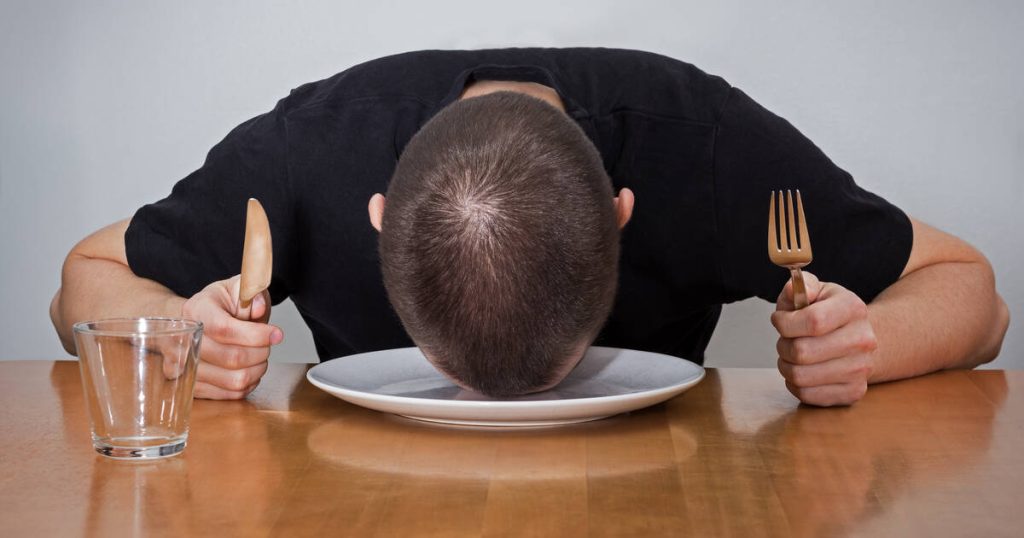 Image Source / ThrillistEw. So if you're in a desperate state of hunger - and we're talking extreme starvation here, not just skipping dinner - your brain will try to get the nutrients it needs by eating itself - specifically, eating some of its cells to get fatty acids it needs. This is also to trick you into feeling hungry so that your brain can hopefully give you a nudge to eat something.
Image Source / ThrillistEw. So if you're in a desperate state of hunger - and we're talking extreme starvation here, not just skipping dinner - your brain will try to get the nutrients it needs by eating itself - specifically, eating some of its cells to get fatty acids it needs. This is also to trick you into feeling hungry so that your brain can hopefully give you a nudge to eat something.Advertisement
48. Your Brain Protects You From Acting Out Your Dreams
 Image Source / Los Angeles TimesWe know that this doesn't always work, as some people sleepwalk, but during sleep, your brain is working to release lots of hormones in your body to promote a deep sleep where you lie still instead of getting up and attending dream drama class. These hormones can also contribute to extreme cases of 'lying still', such as sleep paralysis.
Image Source / Los Angeles TimesWe know that this doesn't always work, as some people sleepwalk, but during sleep, your brain is working to release lots of hormones in your body to promote a deep sleep where you lie still instead of getting up and attending dream drama class. These hormones can also contribute to extreme cases of 'lying still', such as sleep paralysis.Advertisement
49. The Most Powerful Supercomputer In The World Isn't As Fast As Your Brain
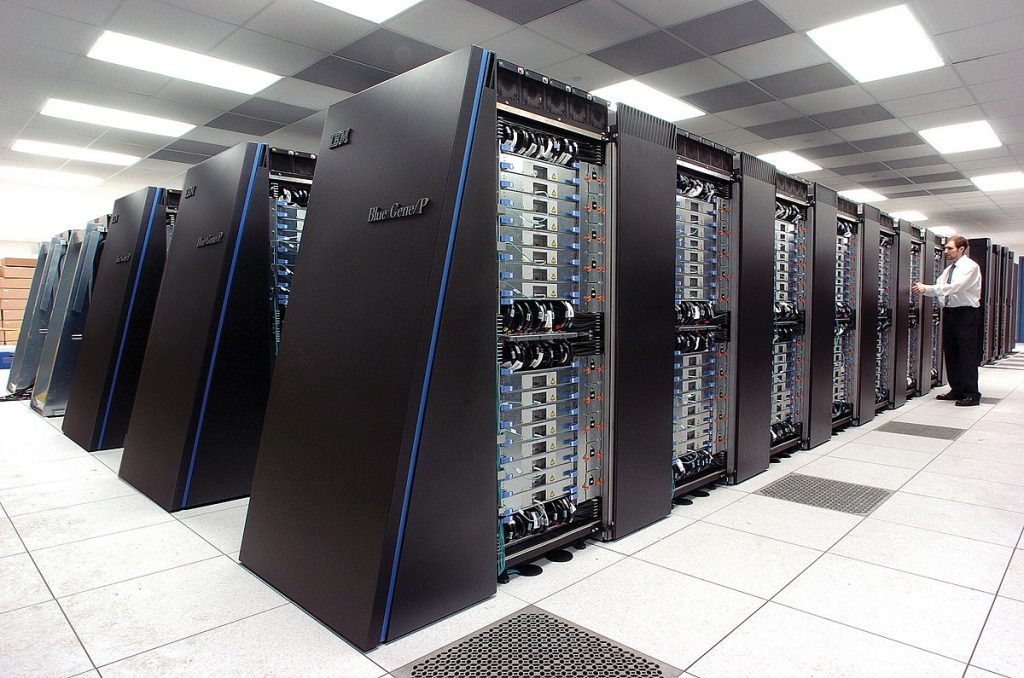 Image Source / WikipediaYou might think that technology is the fastest thing in the world, but your brain still takes first place. Your brain can function at a higher speed and capacity than the world's best supercomputer could, and specifically your brain is around 30 times more powerful than the supercomputer IBM Sequoia.
Image Source / WikipediaYou might think that technology is the fastest thing in the world, but your brain still takes first place. Your brain can function at a higher speed and capacity than the world's best supercomputer could, and specifically your brain is around 30 times more powerful than the supercomputer IBM Sequoia.Advertisement
50. Your Brain Can Process An Image Faster Than A Blink
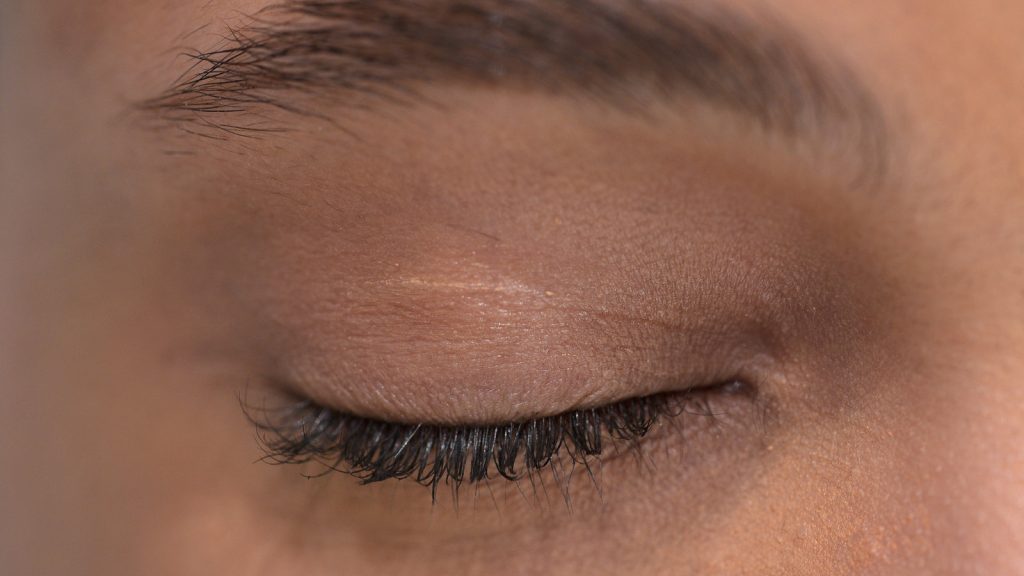 Image Source / The New York TimesWhen your brain processes an image, it happens immediately. Not even in the blink of an eye, but taking less time even than that. Your brain doesn't need to take as long to process something visual in the same way it would processing written text or sounds, which is why it's an impressively instant thing.
Image Source / The New York TimesWhen your brain processes an image, it happens immediately. Not even in the blink of an eye, but taking less time even than that. Your brain doesn't need to take as long to process something visual in the same way it would processing written text or sounds, which is why it's an impressively instant thing.Advertisement
51. The Brain Has Its Own Blood Supply
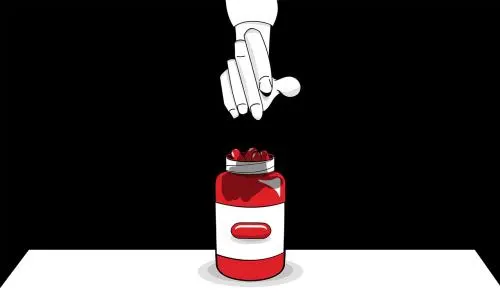 Image Source / The GuardianBelieve it or not, the brain has its own streamlined blood service from the heart, and is the only organ in our bodies' that has its very own blood supply. It receives the blood via two sources; the carotid arteries and the vertebral arteries as well.
Image Source / The GuardianBelieve it or not, the brain has its own streamlined blood service from the heart, and is the only organ in our bodies' that has its very own blood supply. It receives the blood via two sources; the carotid arteries and the vertebral arteries as well.Advertisement
52. The Brain Is The Most Dense Organ In The Body
 Image Source / Wikimedia CommonsIt kinda makes sense when you think about it, the brain is the powerhouse of our bodies and contains that many vessels and neurons that it will need to be pretty dense to keep everything in place. The density of the brain is around 1.4 grams per cubic centimeter.
Image Source / Wikimedia CommonsIt kinda makes sense when you think about it, the brain is the powerhouse of our bodies and contains that many vessels and neurons that it will need to be pretty dense to keep everything in place. The density of the brain is around 1.4 grams per cubic centimeter.Advertisement
53. Your Brain Is 73% Water
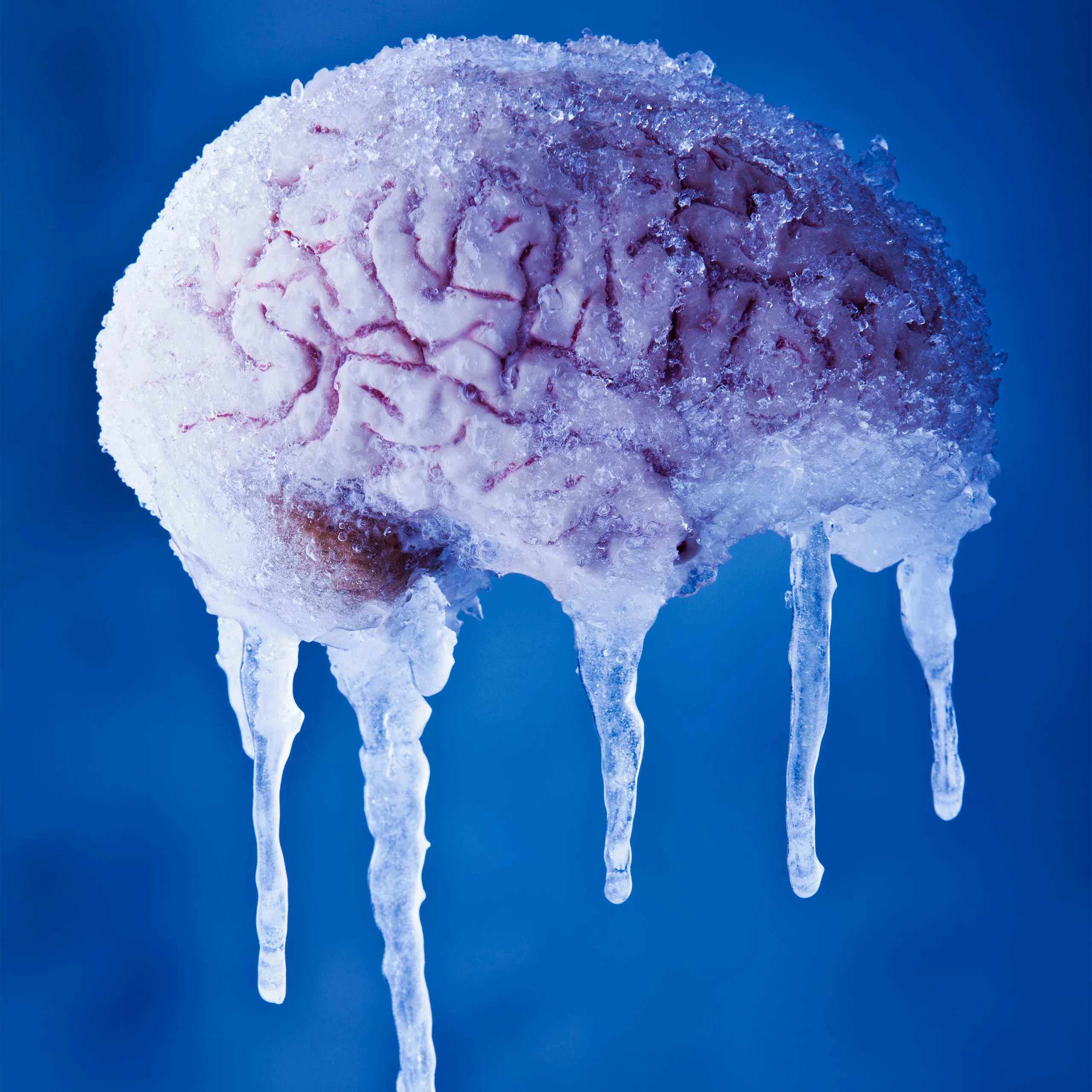 Image Source / FortuneIt might surprise you to find out that the brain is composed of about 73% of water, which is a similar figure to that of the heart. The lungs contain around 83%, while the skin has 64% and the muscles and kidneys stands at 79%. Even our bones hold 31% water!
Image Source / FortuneIt might surprise you to find out that the brain is composed of about 73% of water, which is a similar figure to that of the heart. The lungs contain around 83%, while the skin has 64% and the muscles and kidneys stands at 79%. Even our bones hold 31% water!Advertisement
54. The Brain Is The Only Organ That Is Capable Of Self-Repair
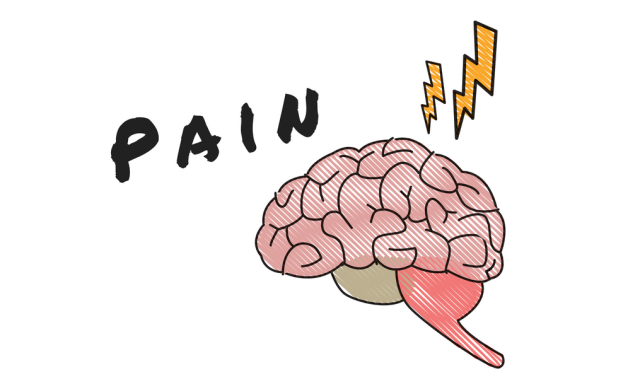 Image Source / Biologista.orgCan you believe that our brain actually repairs itself? Well, you have the wonder of neuroplasticity to thank for that. Frontier Skin define this process as the brain responding to stimuli and changing it its activity by reorganizing its structure, functions, and connections.
Image Source / Biologista.orgCan you believe that our brain actually repairs itself? Well, you have the wonder of neuroplasticity to thank for that. Frontier Skin define this process as the brain responding to stimuli and changing it its activity by reorganizing its structure, functions, and connections.Advertisement
55. The Brain Is The Only Organ That Can't Function Properly Without Oxygen
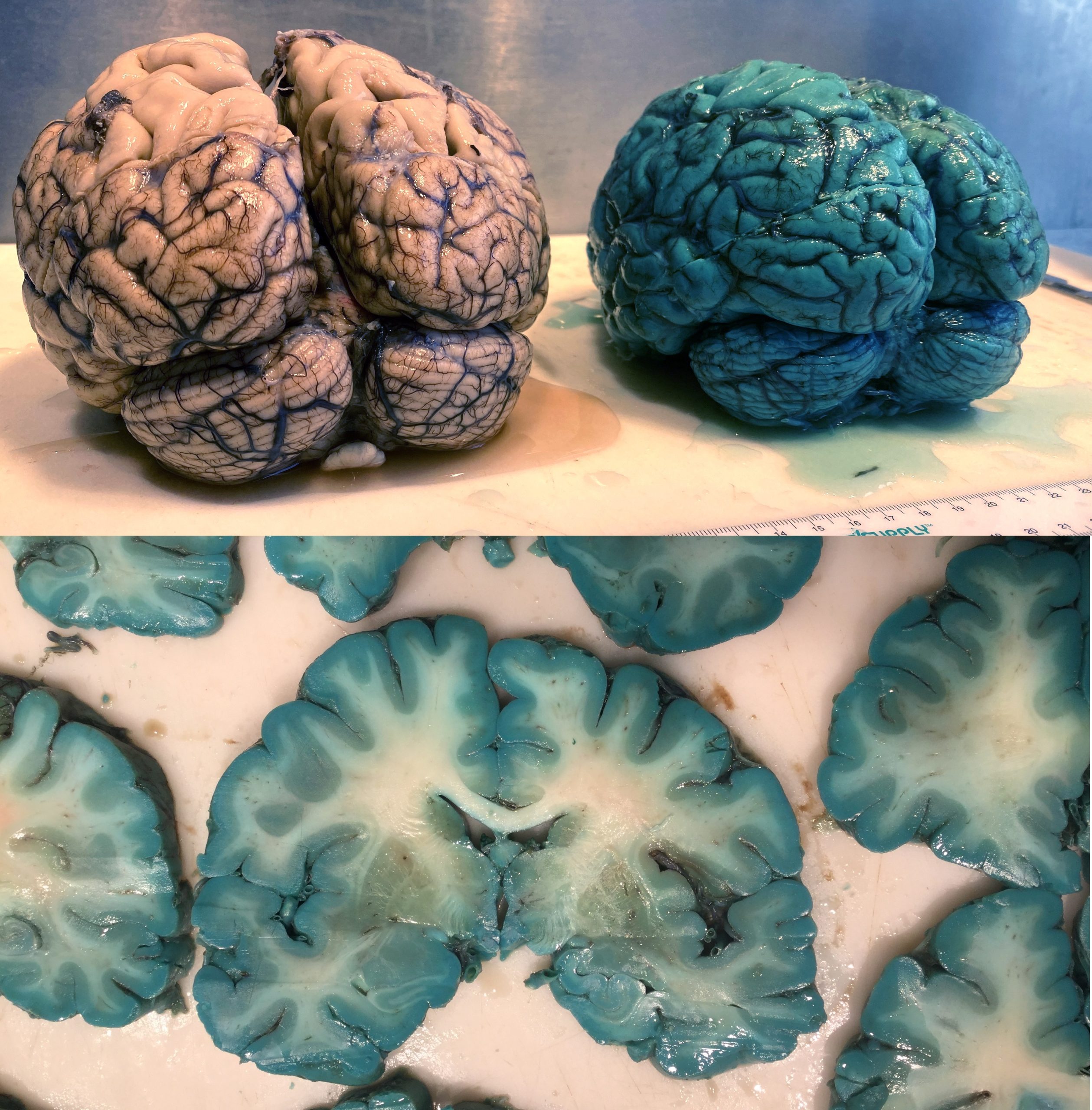 Image Source / Wikimedia CommonsIt will probably come as no surprise to know that oxygen is crucial to the function of the brain, and without a constant flow will very quickly begin to die. Some people would have thought that the brain wouldn't need too much oxygen, but just minutes of oxygen deprivation can have a detrimental affect.
Image Source / Wikimedia CommonsIt will probably come as no surprise to know that oxygen is crucial to the function of the brain, and without a constant flow will very quickly begin to die. Some people would have thought that the brain wouldn't need too much oxygen, but just minutes of oxygen deprivation can have a detrimental affect.Advertisement
56. The Brain Is The Only Organ That Can Experience Lucid Dreaming
 Image Source / Wired UKDreams have bewildered neuroscientists for years, and it's still not determined why the brain dreams. However, it might be interesting to know that when we experience lucid dreams, in which the dreamer is aware that they are dreaming and can control the dream, it's our brain controlling this function.
Image Source / Wired UKDreams have bewildered neuroscientists for years, and it's still not determined why the brain dreams. However, it might be interesting to know that when we experience lucid dreams, in which the dreamer is aware that they are dreaming and can control the dream, it's our brain controlling this function.Advertisement
57. The Brain Is The Only Organ That Can Experience Déjà Vu
 Image Source / Medical News TodayWe've all experienced déjà vu, and there's something quite sinister that comes along with it. It's believed that the reason we experience this phenomenon is due to miscommunication between certain parts of our brain, the parts that control memory recollection and familiarity.
Image Source / Medical News TodayWe've all experienced déjà vu, and there's something quite sinister that comes along with it. It's believed that the reason we experience this phenomenon is due to miscommunication between certain parts of our brain, the parts that control memory recollection and familiarity.Advertisement
58. The Brain Is The Only Organ That Can Experience "Phantom Limb" Syndrome
 Image Source / Genetic Literacy ProjectWhile you might think that phantom limb syndrome comes from the nerve endings where the limb has been amputated, you'd be wrong. The feeling of controlling a limb no longer there comes from the brain, as the parts of the brain that controlled it still remain active.
Image Source / Genetic Literacy ProjectWhile you might think that phantom limb syndrome comes from the nerve endings where the limb has been amputated, you'd be wrong. The feeling of controlling a limb no longer there comes from the brain, as the parts of the brain that controlled it still remain active.Advertisement
59. The Brain Is The Only Organ That Can Experience "Synesthesia"
 Image Source / RedditThe Scientific American describes synaesthesia as the "blending of the senses in which the stimulation of one modality simultaneously produces sensation in a different modality." An example of this is someone who sees colors when they hear music, and it's our brain that causes the sensation.
Image Source / RedditThe Scientific American describes synaesthesia as the "blending of the senses in which the stimulation of one modality simultaneously produces sensation in a different modality." An example of this is someone who sees colors when they hear music, and it's our brain that causes the sensation.Advertisement
60. The Brain Is The Only Organ That Can Experience The "Placebo Effect"
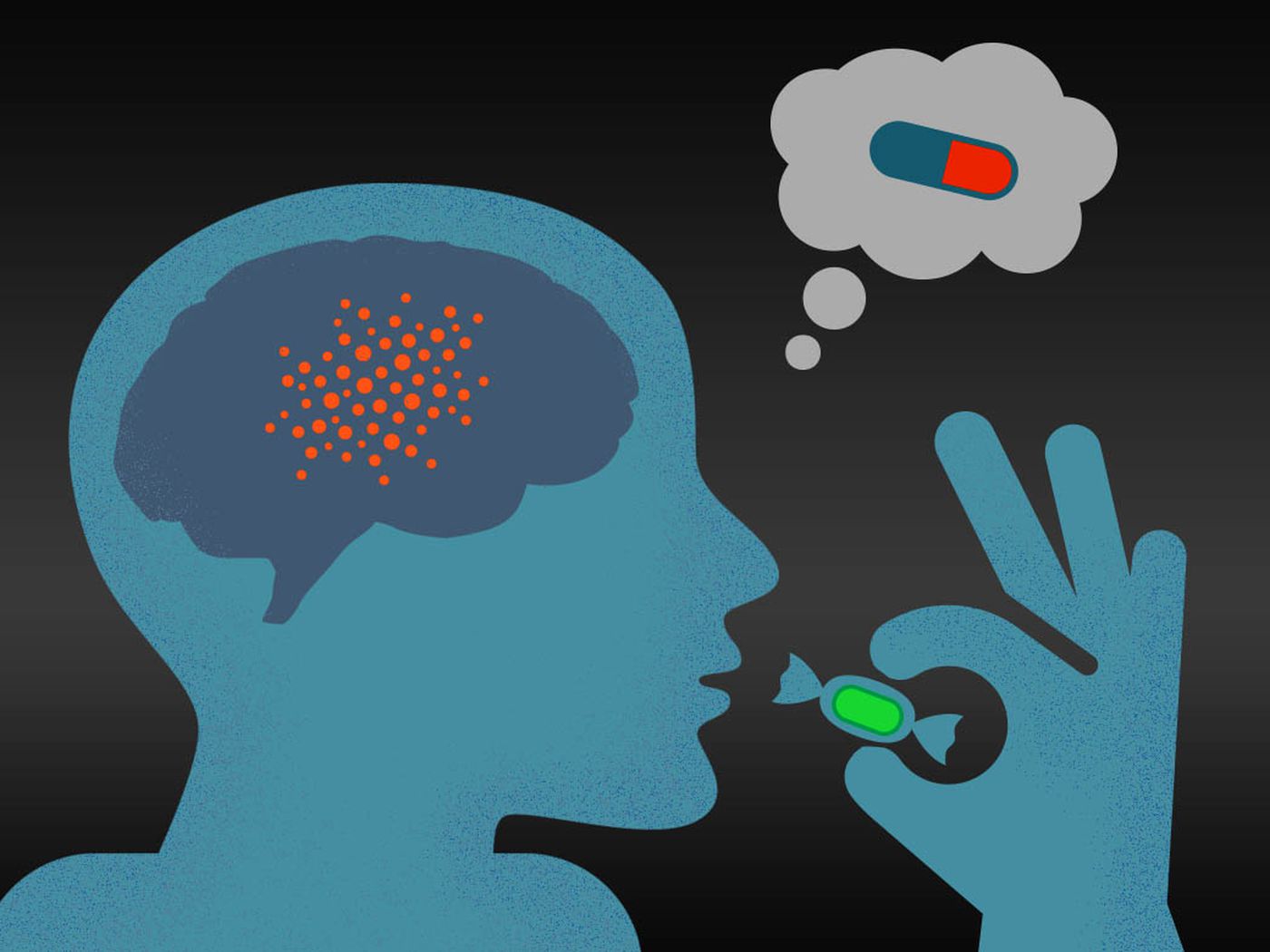 Image Source / VoxIt's fair to say that at one point in our lives, we have all probably fell for the placebo effect. This is where a medication of no therapeutic value is given to us to solve a very real condition. When we take the medication, we may feel that is working, but it is our brain falling for the trick!
Image Source / VoxIt's fair to say that at one point in our lives, we have all probably fell for the placebo effect. This is where a medication of no therapeutic value is given to us to solve a very real condition. When we take the medication, we may feel that is working, but it is our brain falling for the trick!Advertisement
61. Only 2% Dehydration Can Affect Your Physicality
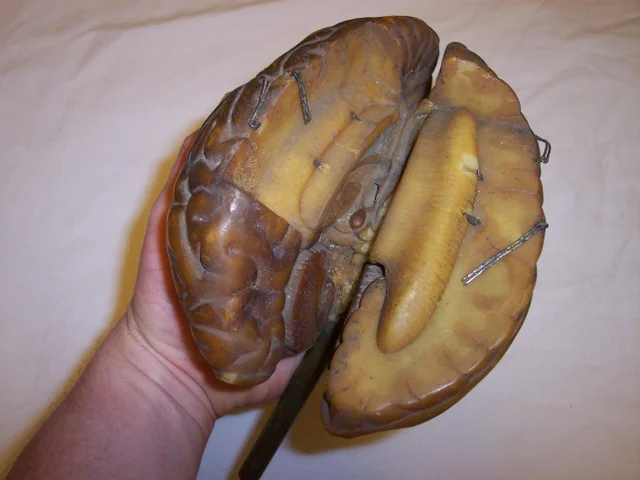 Image Source / RedditAs mentioned a few times before, water and oxygen are both crucial in the functions of our brain. Given that the brain is mainly made up of water, it's not surprising to know that if our brain loses 2% dehydration, it can dramatically effect its functions.
Image Source / RedditAs mentioned a few times before, water and oxygen are both crucial in the functions of our brain. Given that the brain is mainly made up of water, it's not surprising to know that if our brain loses 2% dehydration, it can dramatically effect its functions.Advertisement
62. Sweating Can Age Your Brain
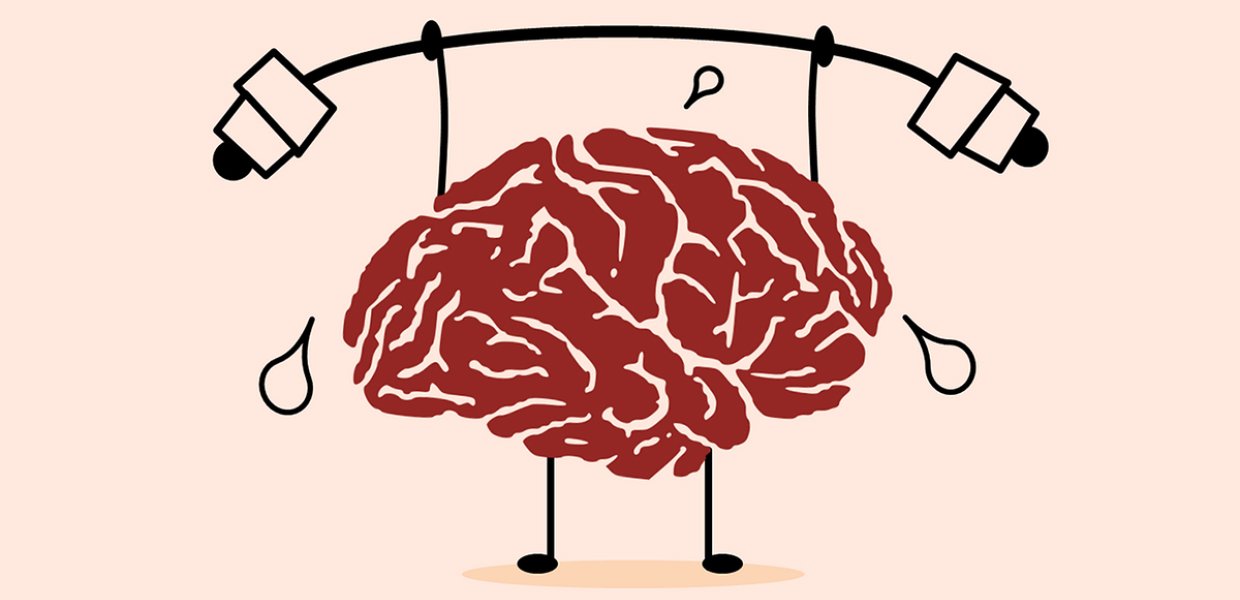 Image Source / USC AnnenbergEach year, as we age, our brain continues to shrink, which is just a given. But did you know that when we partake in ninety minutes of exercise, the sweating can cause our brains to temporarily shrink as much as it would in one year of ageing. Crazy!
Image Source / USC AnnenbergEach year, as we age, our brain continues to shrink, which is just a given. But did you know that when we partake in ninety minutes of exercise, the sweating can cause our brains to temporarily shrink as much as it would in one year of ageing. Crazy!Advertisement
63. Your Brain Weighs Around 3 Pounds
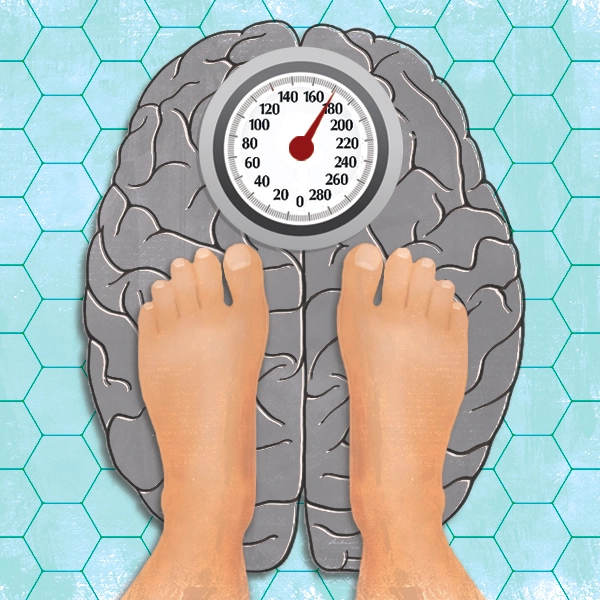 Image Source / THOMAS JAMESThe brain is a hefty little thing and adds about 3lbs to our overall weight. So if you're wondering why you can't get your weight down to zero, well, your brain weighs pounds itself! 60% of the dry weight of our brain is actually fat, more than any other organ in the body.
Image Source / THOMAS JAMESThe brain is a hefty little thing and adds about 3lbs to our overall weight. So if you're wondering why you can't get your weight down to zero, well, your brain weighs pounds itself! 60% of the dry weight of our brain is actually fat, more than any other organ in the body.Advertisement
64. Your Brian Carries 25% Of Your Cholesterol
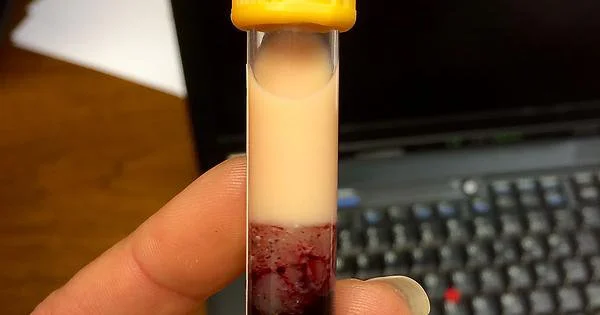 Image Source / RedditOur body needs cholesterol to function, but too much of it can have harmful effects on us. You'd be surprised to know that the brain contains as much as 25% of your body's cholesterol levels. Foods that are high in animal fats, like butter or ghee, add huge amounts to our cholesterol.
Image Source / RedditOur body needs cholesterol to function, but too much of it can have harmful effects on us. You'd be surprised to know that the brain contains as much as 25% of your body's cholesterol levels. Foods that are high in animal fats, like butter or ghee, add huge amounts to our cholesterol.Advertisement
65. There Are Billions Of Cells That Make Up The Brain
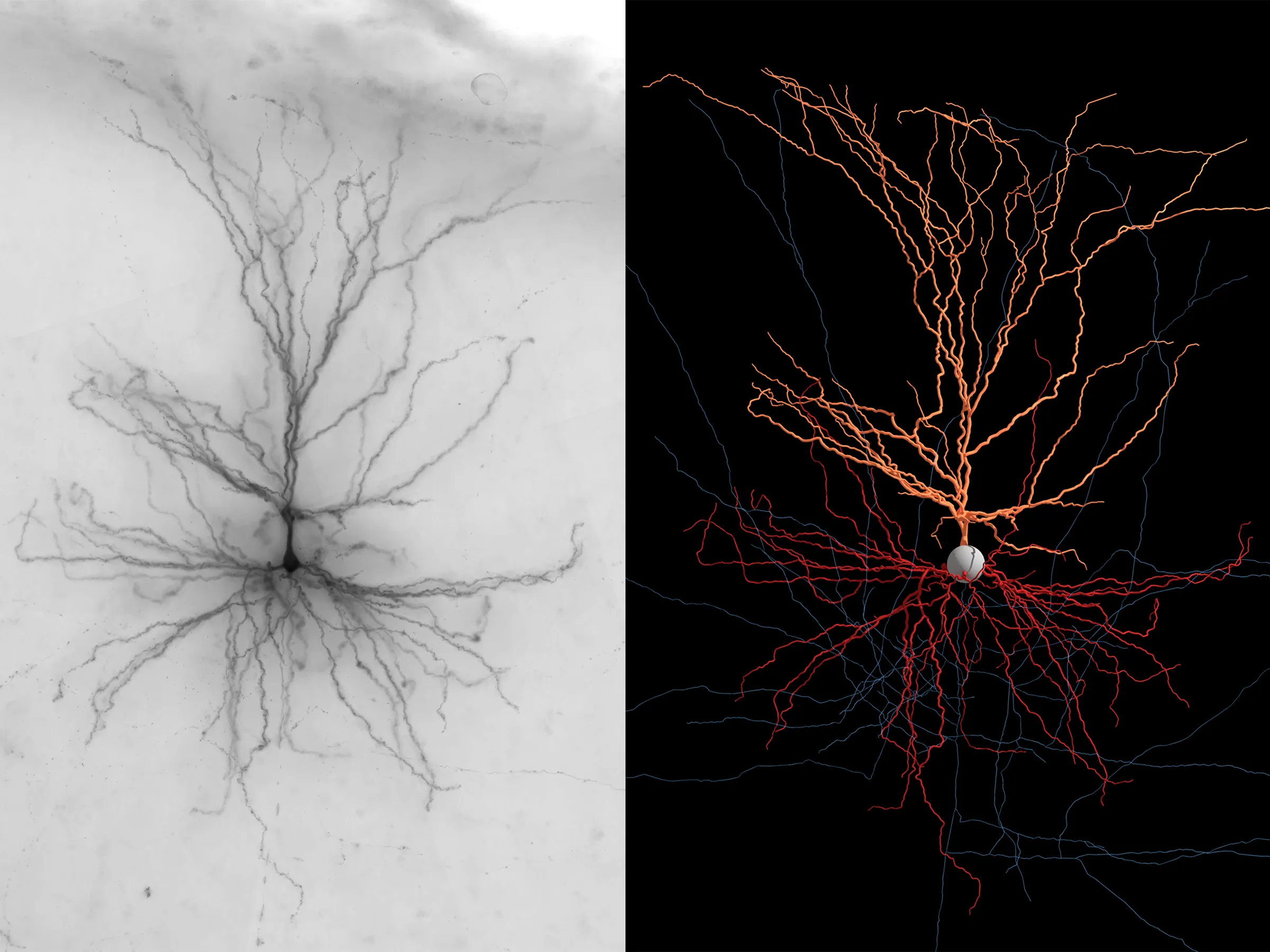 Image Source / WIREDNow this is a figure that no neuroscientist can actually put their finger on, but they have a pretty good guestimate when it comes to the amount of brain cells our brains our made up of. When they last looked, they worked out that our brains ae made up of around 86 BILLION cells.
Image Source / WIREDNow this is a figure that no neuroscientist can actually put their finger on, but they have a pretty good guestimate when it comes to the amount of brain cells our brains our made up of. When they last looked, they worked out that our brains ae made up of around 86 BILLION cells.Advertisement
66. Neurons Transmit At Impossible Speeds
 Image Source / Markets InsiderYou won't believe the speed in which neurons transmit nerve impulses... each second your neurons are transferring around 1,000 nerve impulses. They can make up to tens of thousands synaptic contact with other neurons in this time too... now that is mind-blowing (pardon the pun).
Image Source / Markets InsiderYou won't believe the speed in which neurons transmit nerve impulses... each second your neurons are transferring around 1,000 nerve impulses. They can make up to tens of thousands synaptic contact with other neurons in this time too... now that is mind-blowing (pardon the pun).Advertisement
67. Babies' Heads Are Big To Give Room For Growth
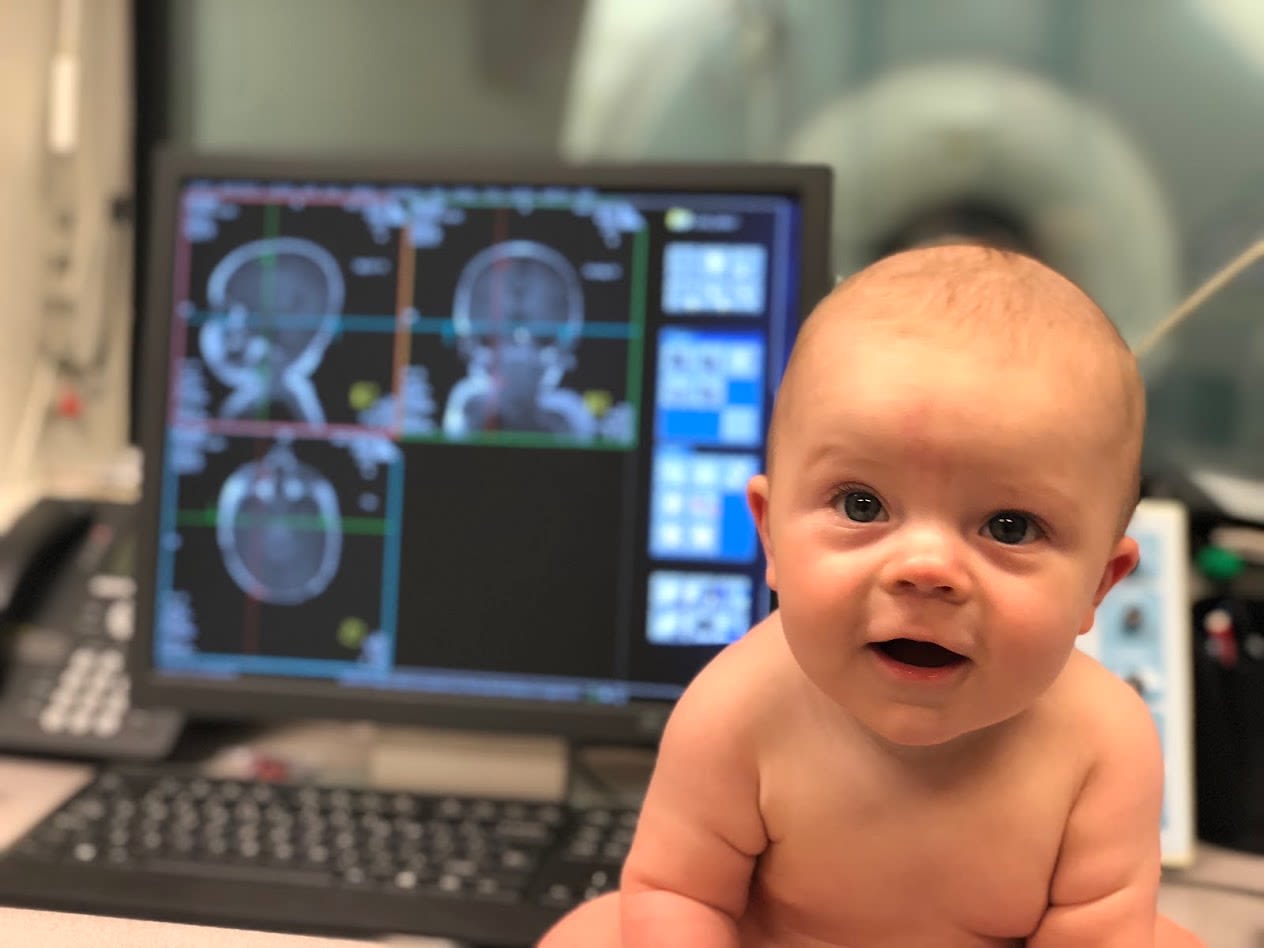 Image Source / Emory News CentreAs mentioned earlier, babies brains grow and that's obvious. Evolution has made sure that the babies heads are big enough for it to accommodate to a rapidly growing brain. However, you'll probably be surprised to know that the brain of a 2 year old is 80% of the adult size.
Image Source / Emory News CentreAs mentioned earlier, babies brains grow and that's obvious. Evolution has made sure that the babies heads are big enough for it to accommodate to a rapidly growing brain. However, you'll probably be surprised to know that the brain of a 2 year old is 80% of the adult size.Advertisement
68. The Brain Is Coined The "Random Thought Generator"
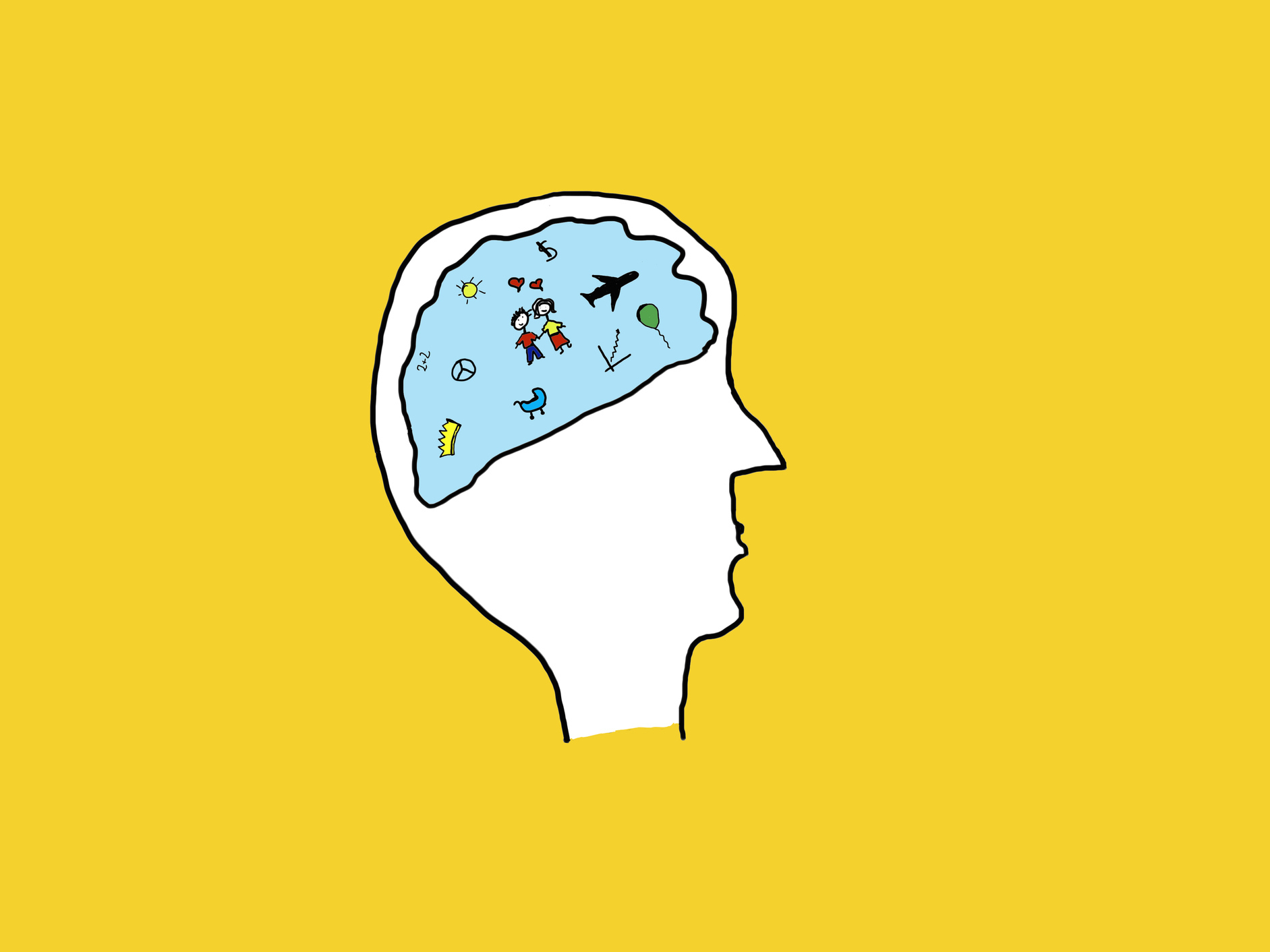 Image Source / NPRAccording to the University of Southern California, the Laboratory of Neuro Imaging predicts the the average human brain generates around 48.6 thoughts per minute. That means, over the course of the day, your brain is giving you up to 70,000 thoughts.
Image Source / NPRAccording to the University of Southern California, the Laboratory of Neuro Imaging predicts the the average human brain generates around 48.6 thoughts per minute. That means, over the course of the day, your brain is giving you up to 70,000 thoughts.Advertisement
69. Hundreds Of Milliliters Of Blood Flows Every Minute
 Image Source / RUNDE'S ROOMAs we've said, the brain needs blood and has its own blood supply. Actually, around 750-1,000 milliliters of blood flows through the brain every minute. That's actually enough to fill a bottle of wine or one of the liter bottles of your favourite soda.
Image Source / RUNDE'S ROOMAs we've said, the brain needs blood and has its own blood supply. Actually, around 750-1,000 milliliters of blood flows through the brain every minute. That's actually enough to fill a bottle of wine or one of the liter bottles of your favourite soda.Advertisement
70. Men's Brains Are 10% Bigger Than Women's
 Image Source / NatureI understand how biased this sounds, and it's all based on averages, although I think a few women can disagree when we say that men's brains are bigger than women's. Well, in actual fact, the brain of a man tends to be around 10% bigger than a woman's brain.
Image Source / NatureI understand how biased this sounds, and it's all based on averages, although I think a few women can disagree when we say that men's brains are bigger than women's. Well, in actual fact, the brain of a man tends to be around 10% bigger than a woman's brain.Advertisement
71. Women Have Better Memory Than Men
 Image Source / NBC NewsWhile the male brain might be bigger, it doesn't make it better in every way. The hippocampus is the portion of the brain that is in control of memory recollection, and this part of the brain tends to be bigger in women. I think that's something we can all agree with!
Image Source / NBC NewsWhile the male brain might be bigger, it doesn't make it better in every way. The hippocampus is the portion of the brain that is in control of memory recollection, and this part of the brain tends to be bigger in women. I think that's something we can all agree with!Advertisement
72. Einstein's Brain Was Smaller Than The Average
 Image Source / NPROne of the greatest mathematicians ever to live, Albert Einstein, had a smaller brain than the average, which is quite surprising. I think it's safe to say that the size of your brain doesn't equate to the powers of it, given that Einstein's brain weighed 10% less than the average.
Image Source / NPROne of the greatest mathematicians ever to live, Albert Einstein, had a smaller brain than the average, which is quite surprising. I think it's safe to say that the size of your brain doesn't equate to the powers of it, given that Einstein's brain weighed 10% less than the average.Advertisement
73. Neanderthal Brains Were Bigger Than Ours
 Image Source / Smithsonian MagazineOur brains have shrunk over time, neuroscientists have discovered. The brain of a Neanderthal was actually bigger than the brains of us homo sapiens now. Not only that, but they had more elongated brains, while the brain now is known to be more spherical.
Image Source / Smithsonian MagazineOur brains have shrunk over time, neuroscientists have discovered. The brain of a Neanderthal was actually bigger than the brains of us homo sapiens now. Not only that, but they had more elongated brains, while the brain now is known to be more spherical.Advertisement
74. Humans Have The Biggest Brain In Proportion To Our Body Among Animals
 Image Source / TwitterAlthough humans don't have the biggest brains, we do have the largest brain to body weight proportion than others in the Animal kingdom. The actual biggest brain, unsurprisingly, belongs to the sperm whale, which has a brain that weighs 17 pounds... now that is hefty.
Image Source / TwitterAlthough humans don't have the biggest brains, we do have the largest brain to body weight proportion than others in the Animal kingdom. The actual biggest brain, unsurprisingly, belongs to the sperm whale, which has a brain that weighs 17 pounds... now that is hefty.Advertisement
75. Cab Drivers Have Better Memory Than The Average Brain
 Image Source / Time OutAs previously mentioned, the hippocampus is the portion of the brain in control of memory recollection. It's been discovered that this part of the brain is larger in cab drivers, based on a study of London-based taxi drivers. It's believed that it grows with the mental strain of navigating the 25,000 streets of London.
Image Source / Time OutAs previously mentioned, the hippocampus is the portion of the brain in control of memory recollection. It's been discovered that this part of the brain is larger in cab drivers, based on a study of London-based taxi drivers. It's believed that it grows with the mental strain of navigating the 25,000 streets of London.Advertisement
76. Depression Can Cause Your Brain To Shrink
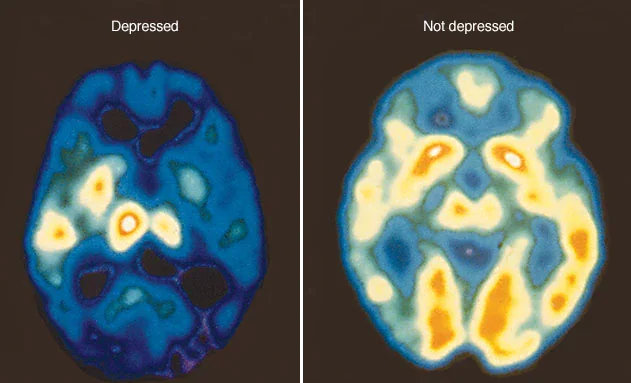 Image Source / Mayo ClinicThere are multiple reasons that your brain might shrink, but it has been proven that chronic stress and depression, which are widely experienced conditions, can both have an adverse impact on the brain, which shows a measurable shrink in size.
Image Source / Mayo ClinicThere are multiple reasons that your brain might shrink, but it has been proven that chronic stress and depression, which are widely experienced conditions, can both have an adverse impact on the brain, which shows a measurable shrink in size.Advertisement
77. The Average IQ Continues To Decrease Each Decade
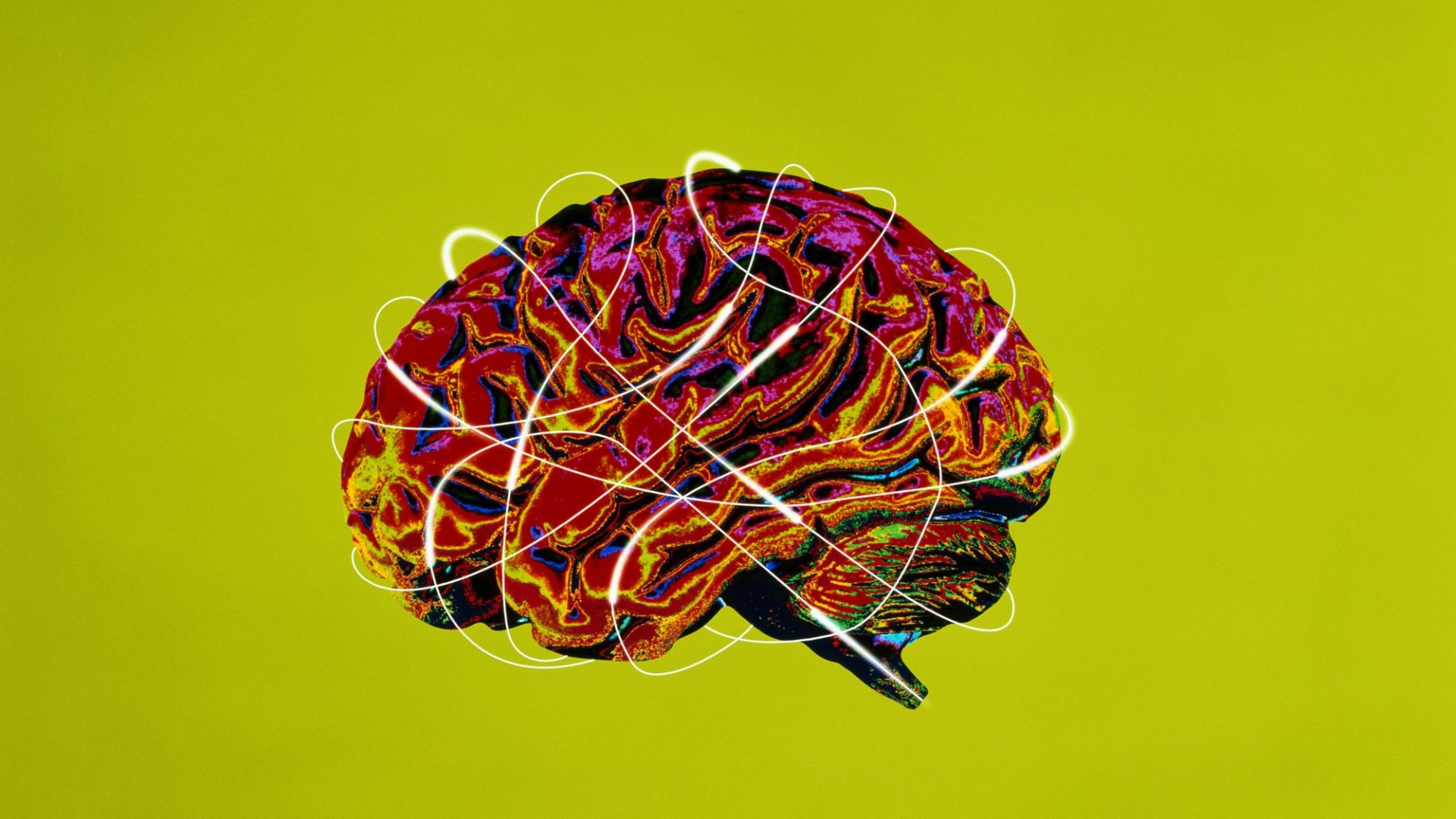 Image Source / Inc. MagazineWith the brain comes IQ, I'm sure we've all taken a IQ test once or twice in our lives. Well, it's believed that since the average IQ score in the late 1800s, the IQ of people has begun to shrink, approximately 1.6 pointers per decade, with a total loss of 13.35 points.
Image Source / Inc. MagazineWith the brain comes IQ, I'm sure we've all taken a IQ test once or twice in our lives. Well, it's believed that since the average IQ score in the late 1800s, the IQ of people has begun to shrink, approximately 1.6 pointers per decade, with a total loss of 13.35 points.Advertisement
78. Brain Cells Will Canablize Themselves When Necessary
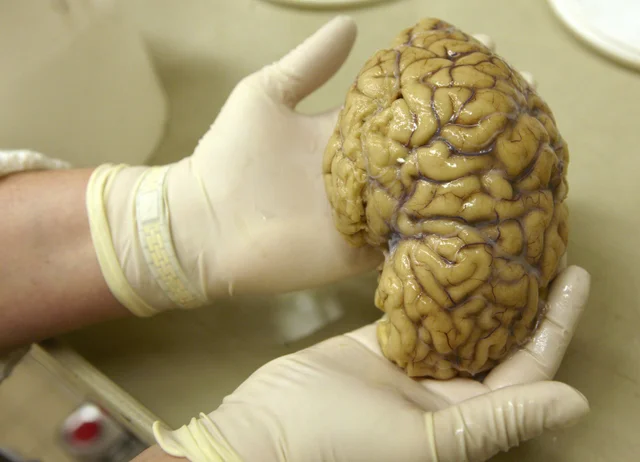 Image Source / RedditIf you're dieting with low-fat diets, you might be shocked to know that you're causing your brain to actually feed on itself. It's been found that brain cells, when in a state of starvation, will cannibalize themselves in a last-minute active attempt to avoid starvation.
Image Source / RedditIf you're dieting with low-fat diets, you might be shocked to know that you're causing your brain to actually feed on itself. It's been found that brain cells, when in a state of starvation, will cannibalize themselves in a last-minute active attempt to avoid starvation.Advertisement
79. Electromagnetic Frequencies Can Affect Your Brain
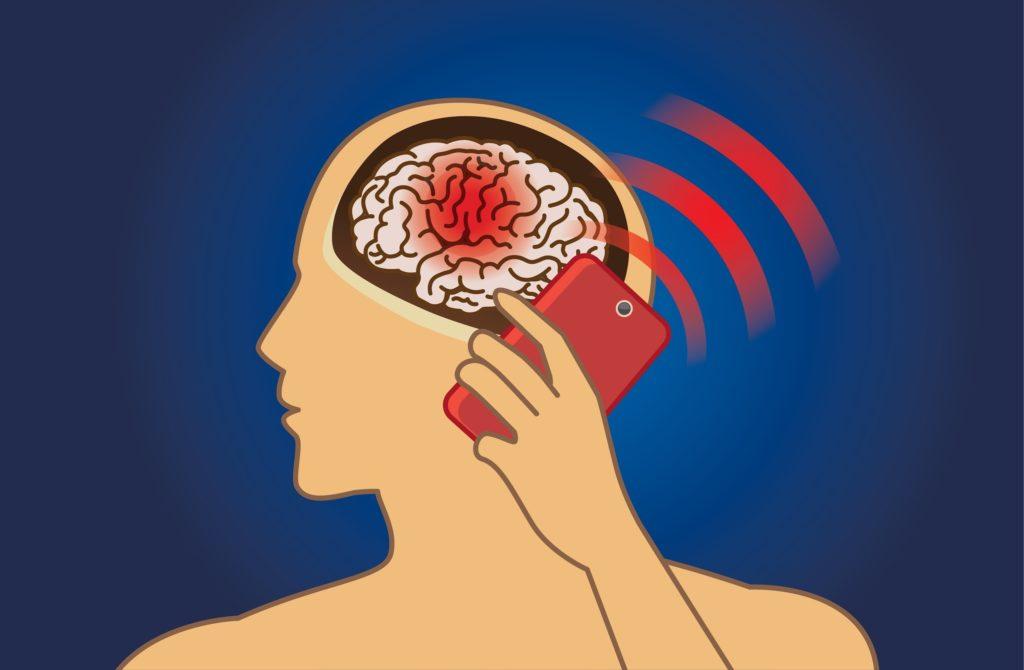 Image Source / Pintas & Mullins Law FirmElectromagnetic frequencies are the kind of waves given off by your cell phone and similar devices. It's been found that these devices can have a negative impact on over 140 proteins in the brain during high and long-lasting periods of exposure. Put the phone down!
Image Source / Pintas & Mullins Law FirmElectromagnetic frequencies are the kind of waves given off by your cell phone and similar devices. It's been found that these devices can have a negative impact on over 140 proteins in the brain during high and long-lasting periods of exposure. Put the phone down!Advertisement
80. We Are Destroying Our Organic GPS
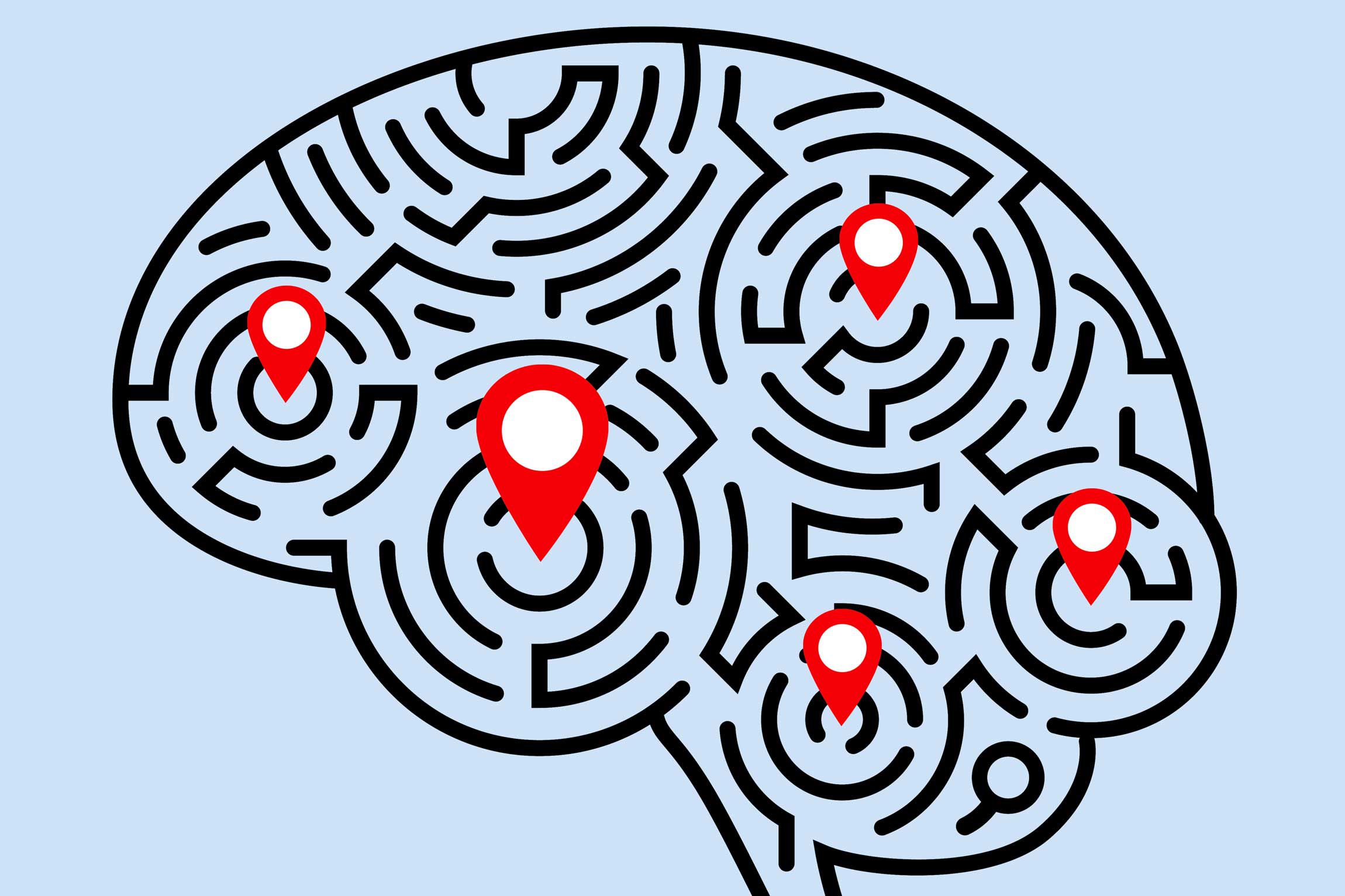 Image Source / The Washington PostOur brains are built in with an organic GPS, and we are actively destroying it. The more we rely on artificial GPS devices, the more we are debilitating our ability to have an accurate sense of direction, which is a skill that took thousands of years to develop.
Image Source / The Washington PostOur brains are built in with an organic GPS, and we are actively destroying it. The more we rely on artificial GPS devices, the more we are debilitating our ability to have an accurate sense of direction, which is a skill that took thousands of years to develop.Advertisement
